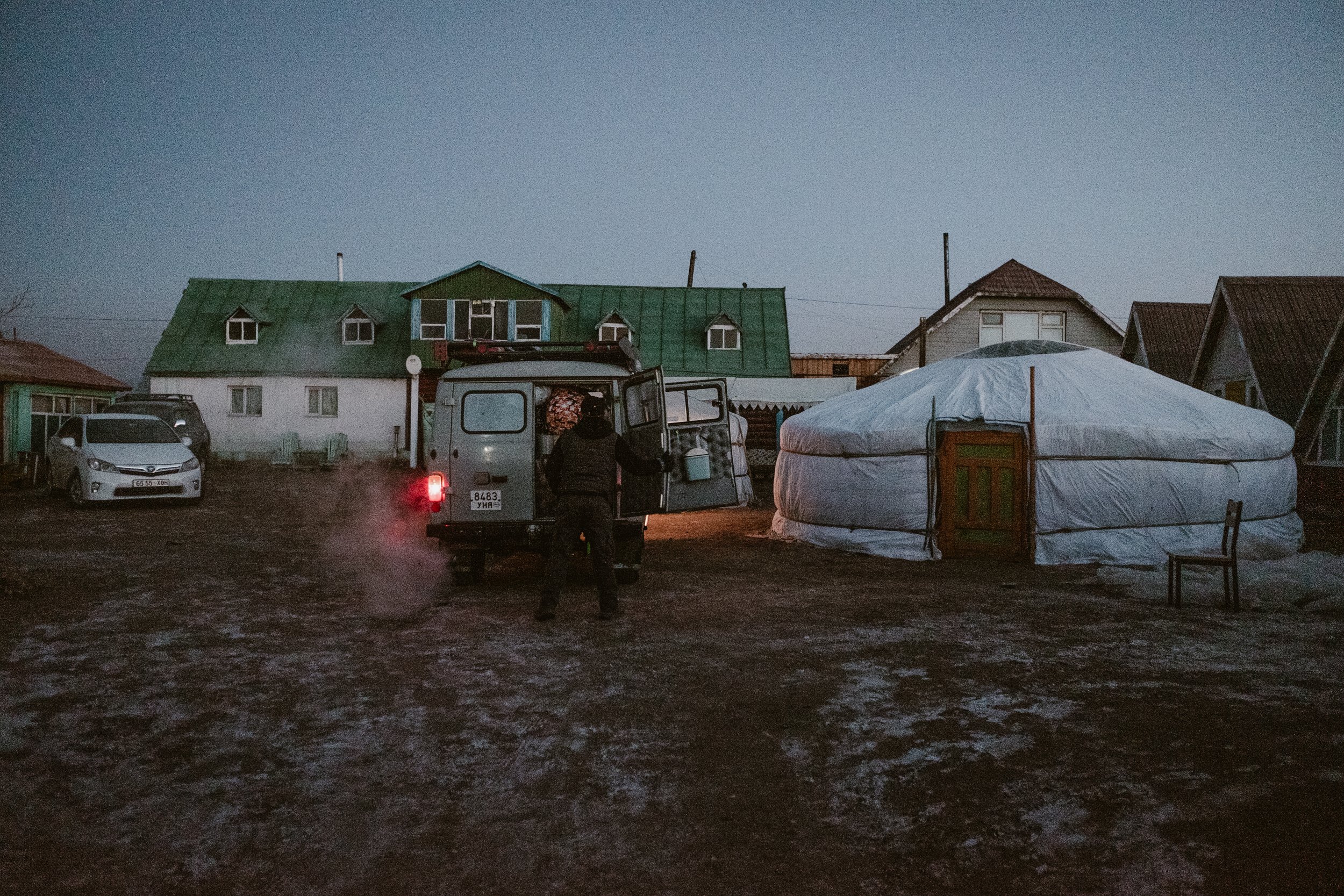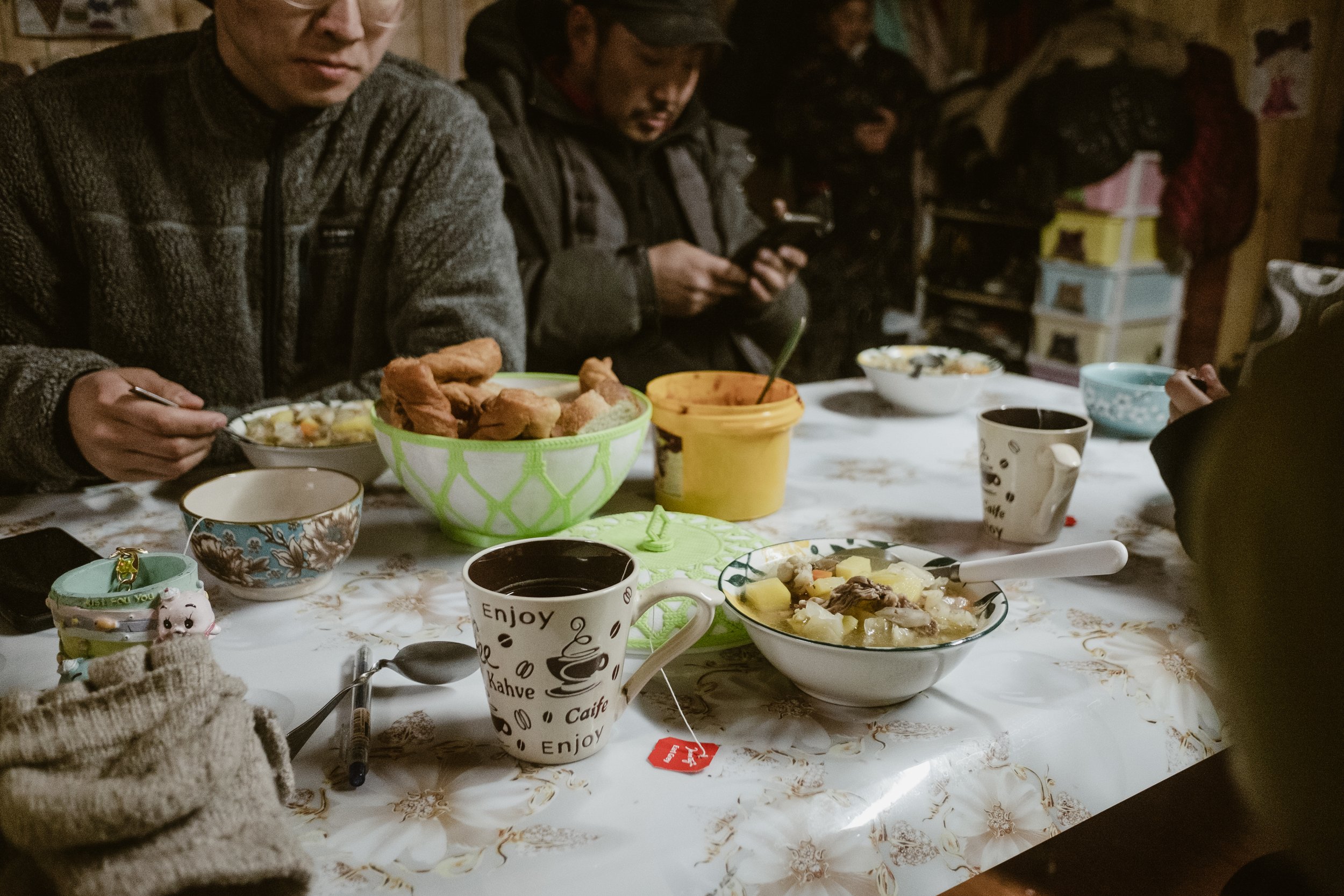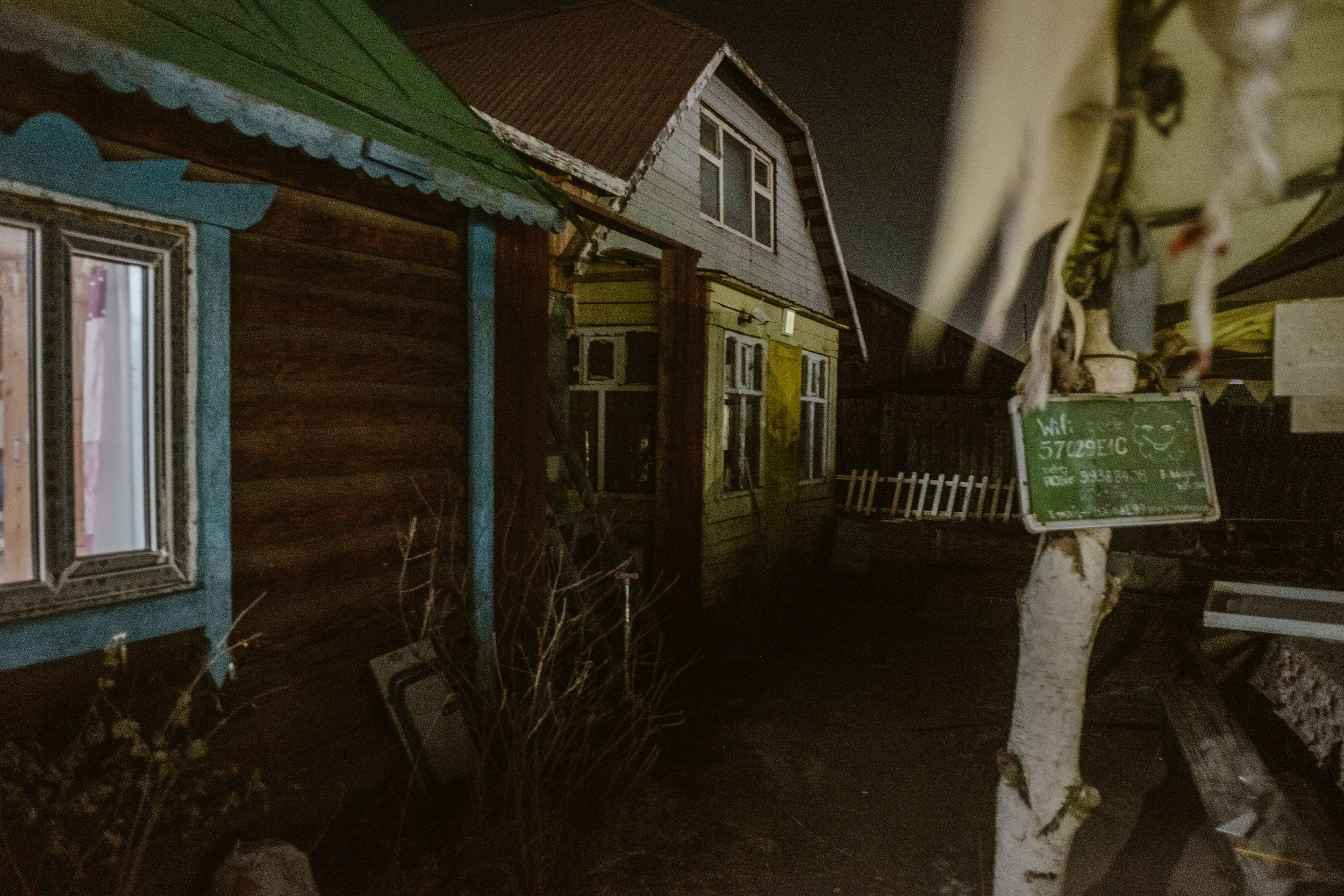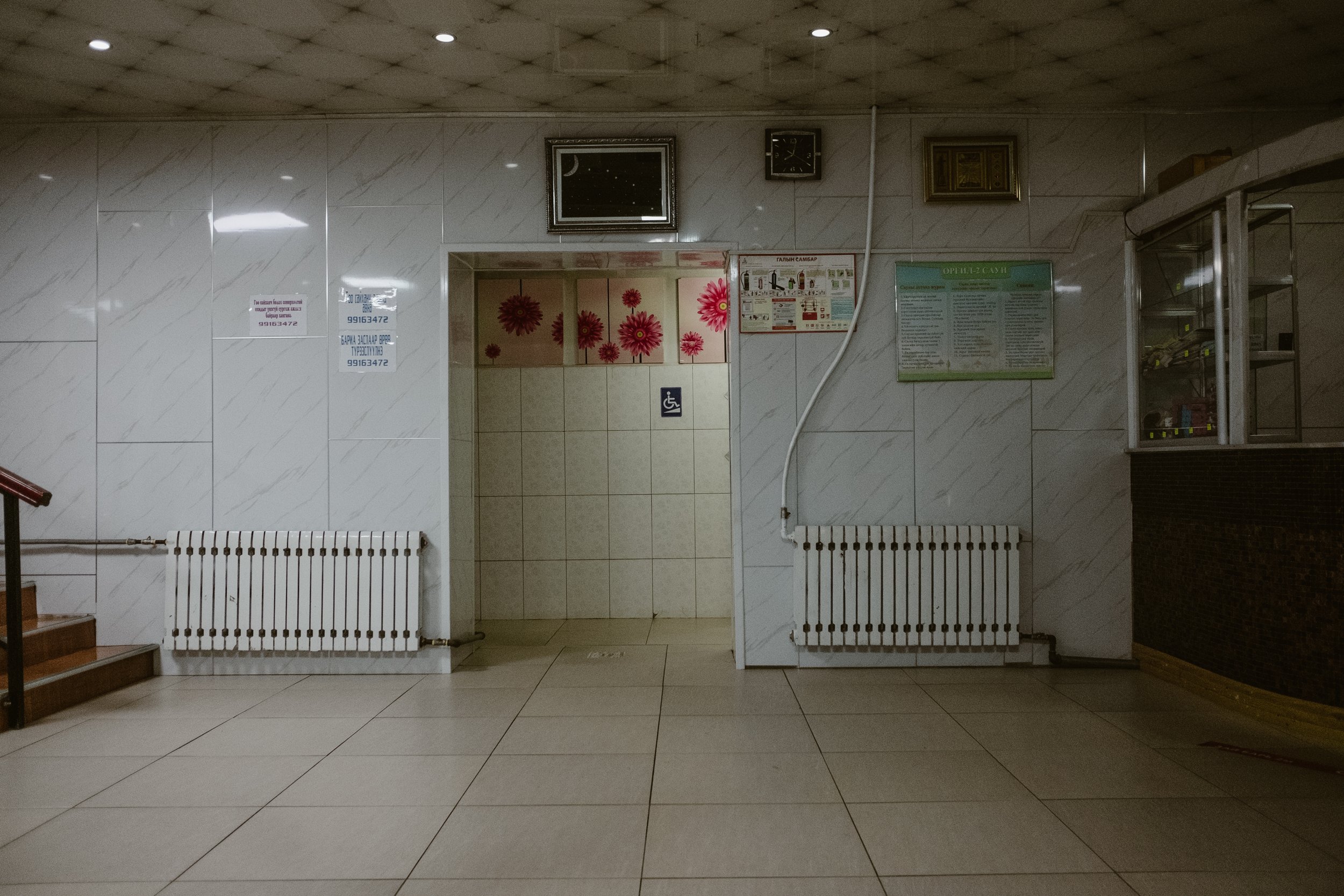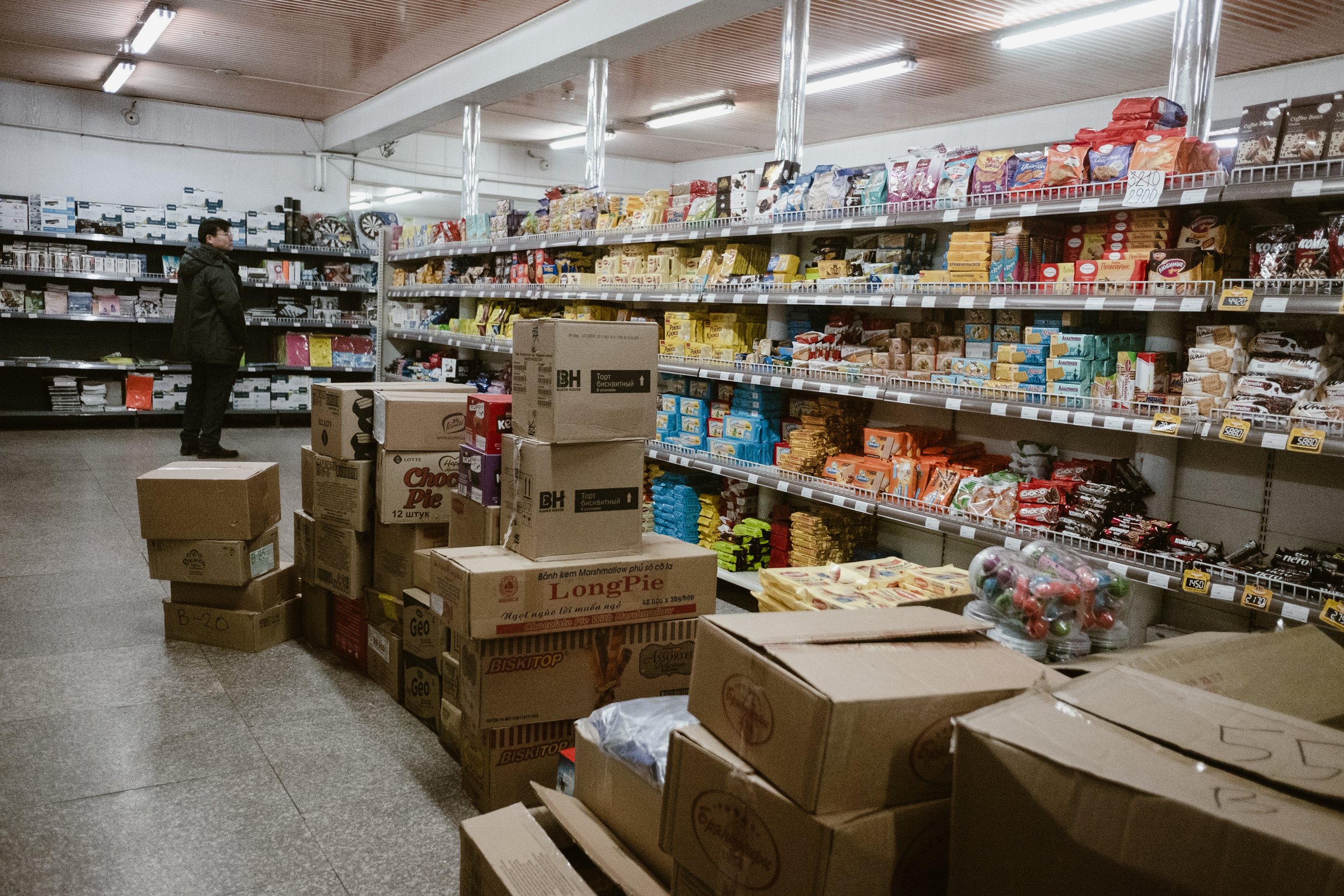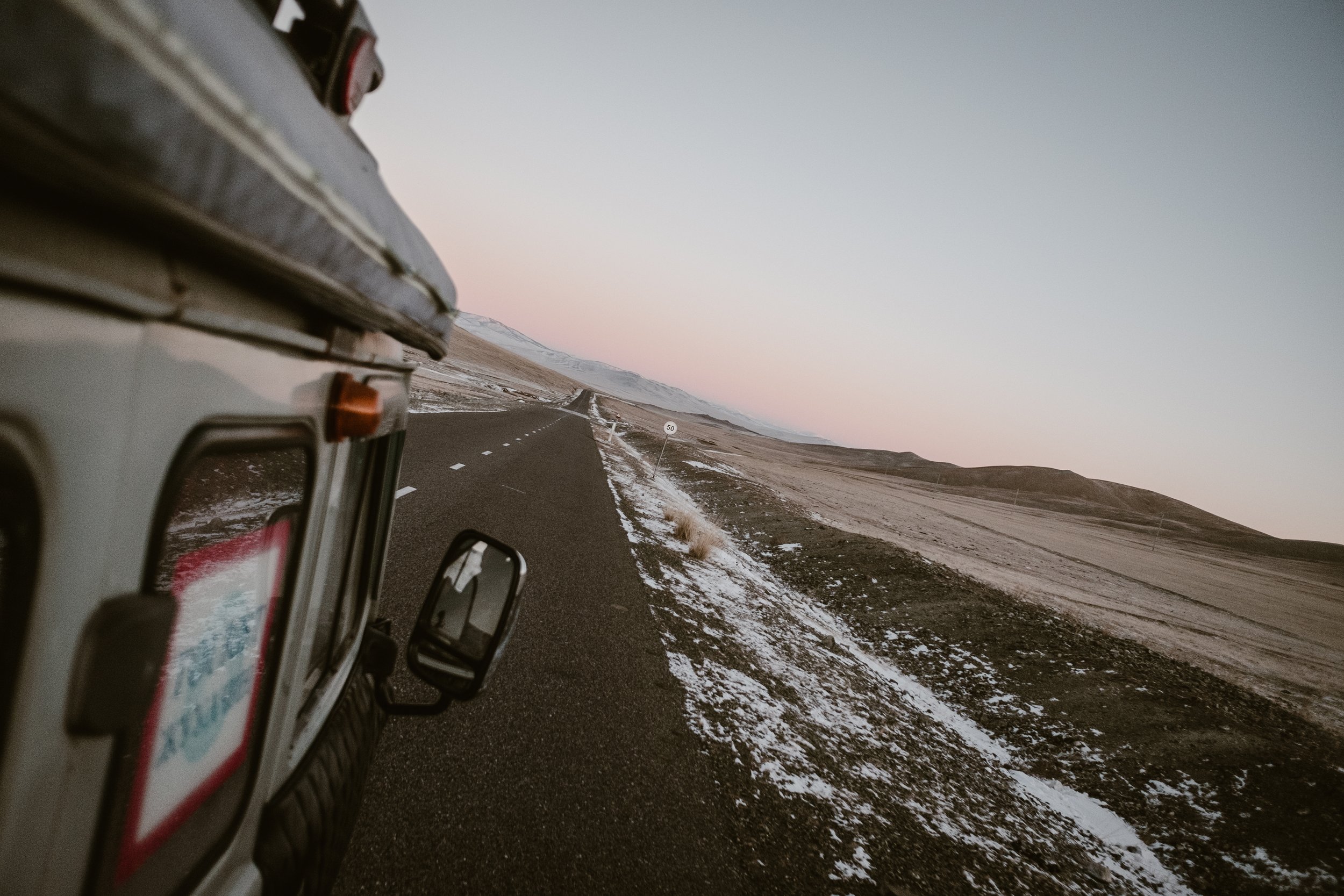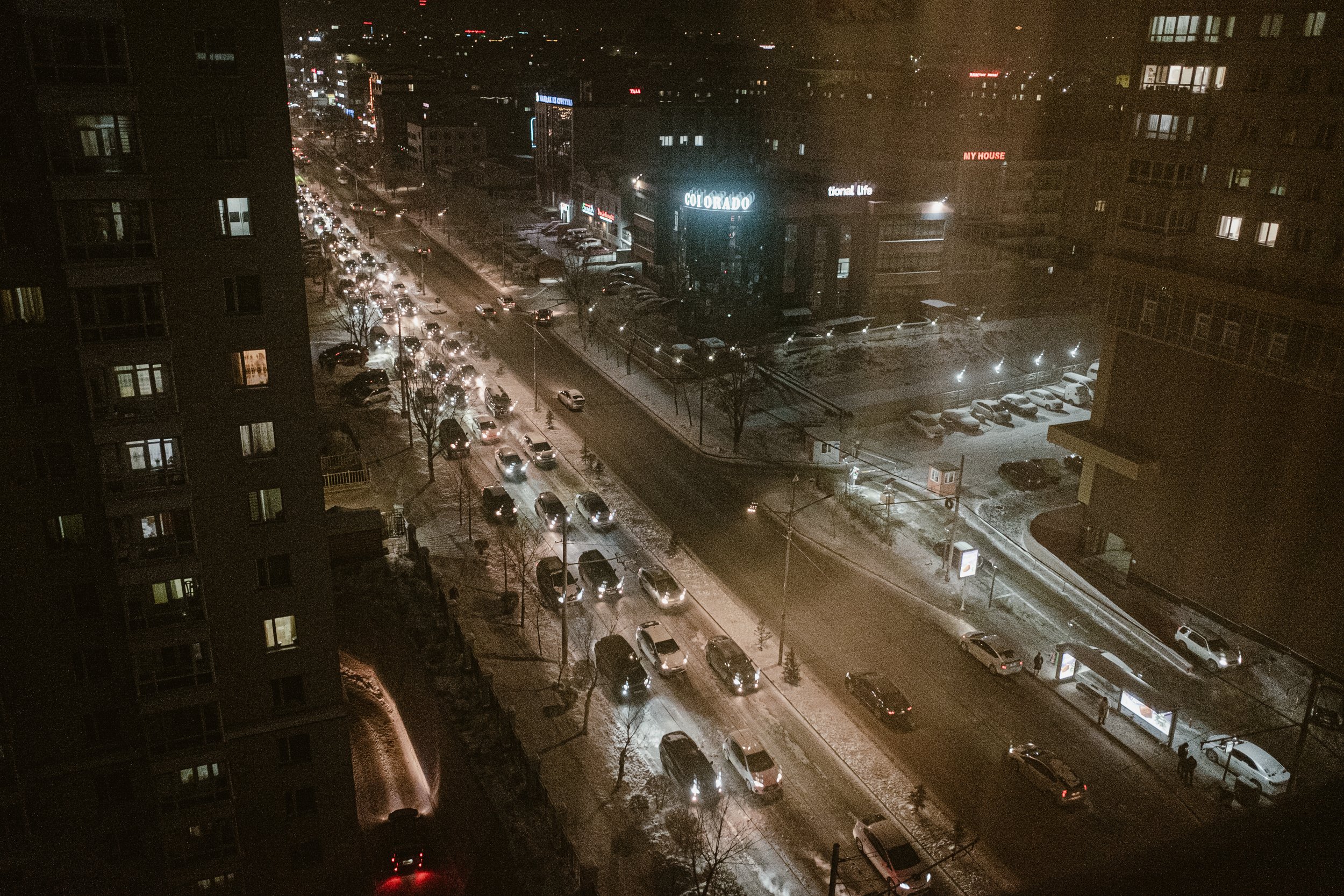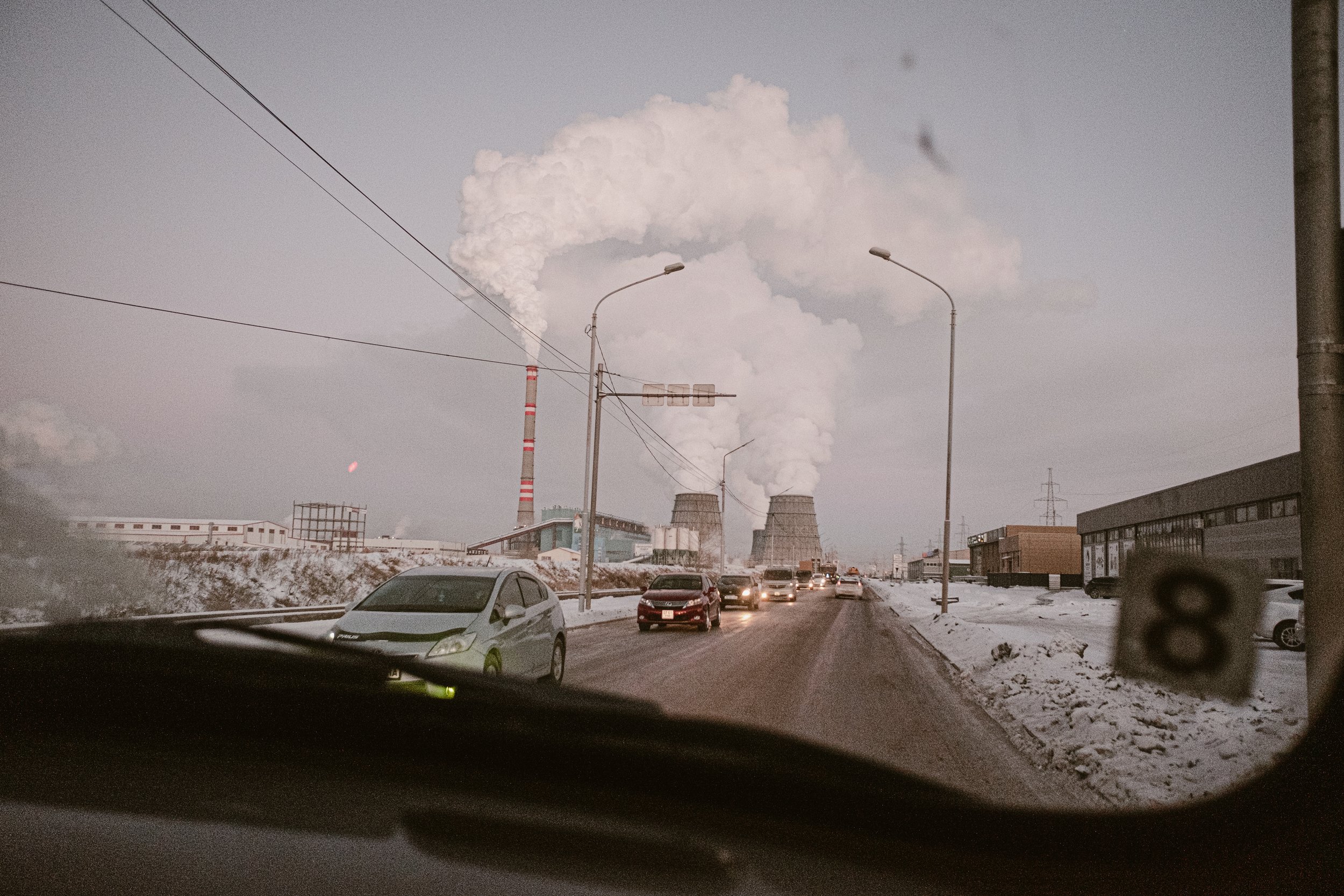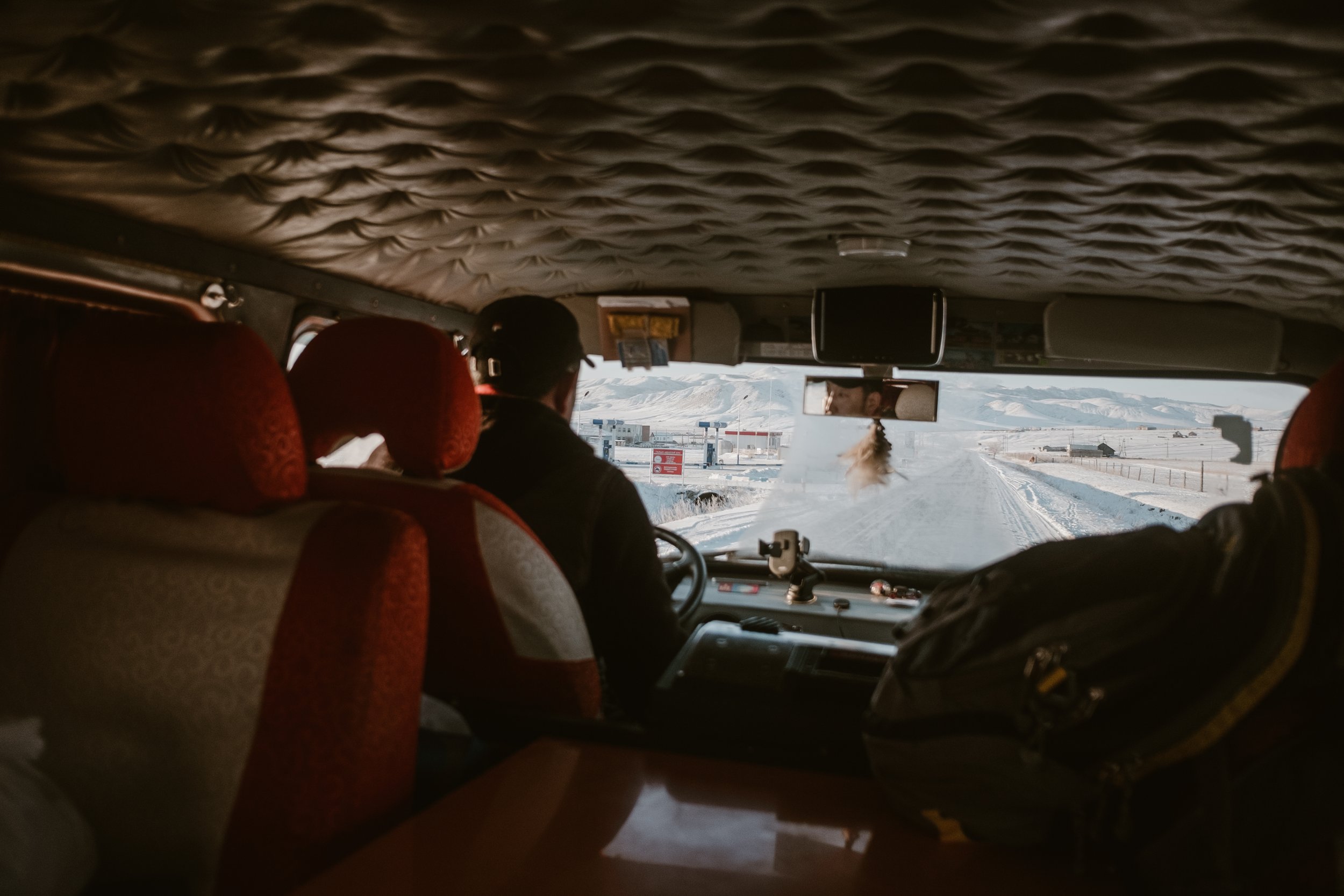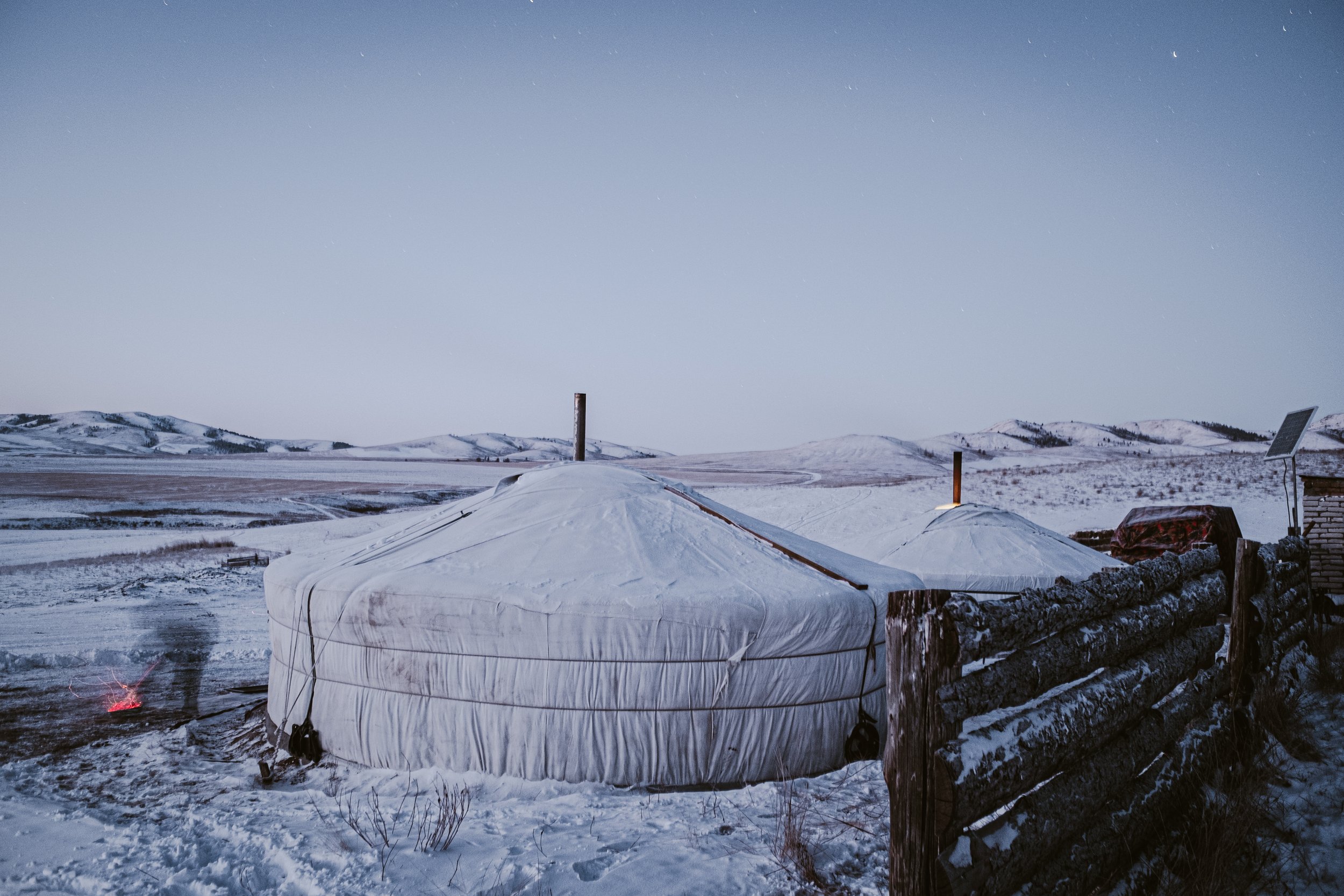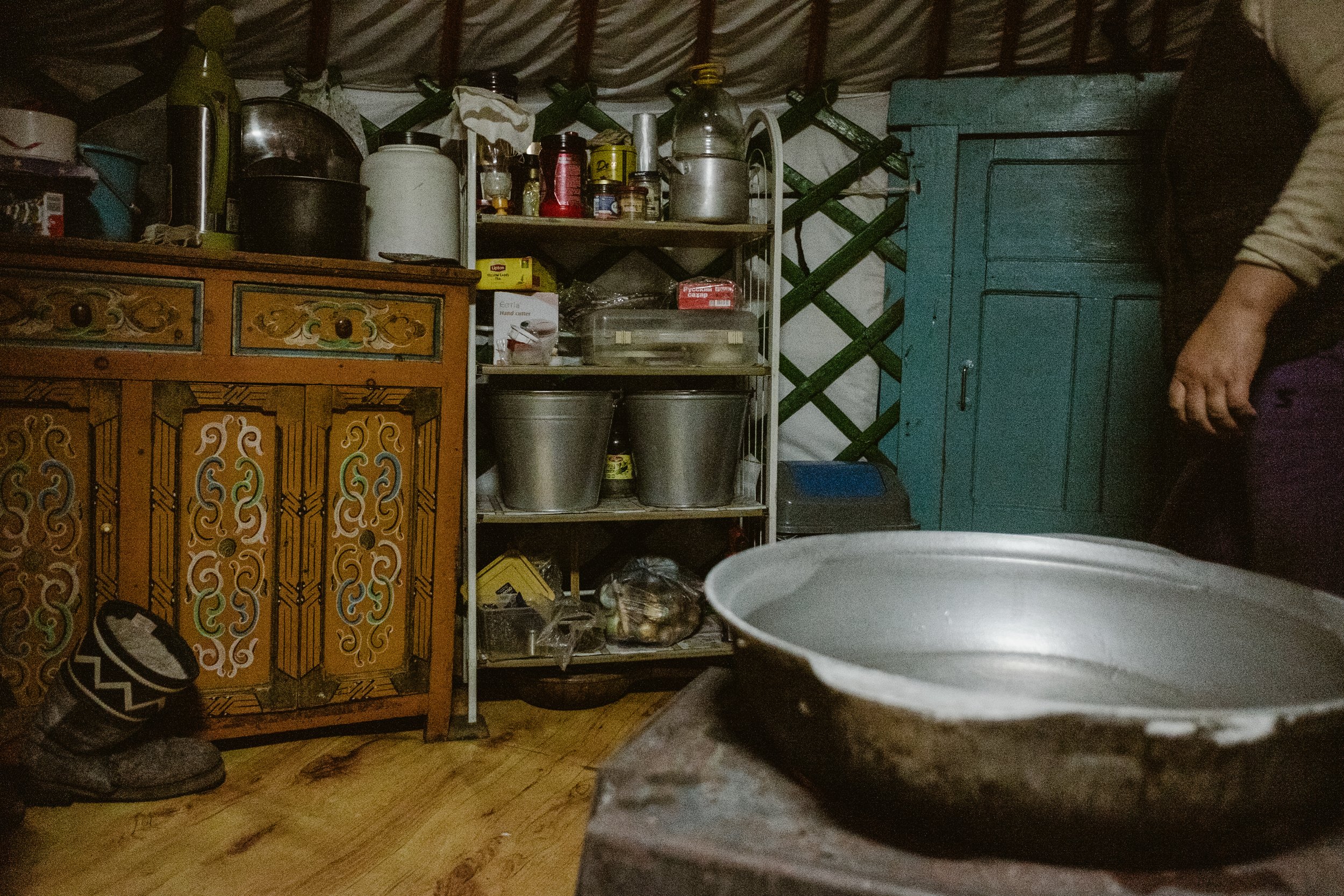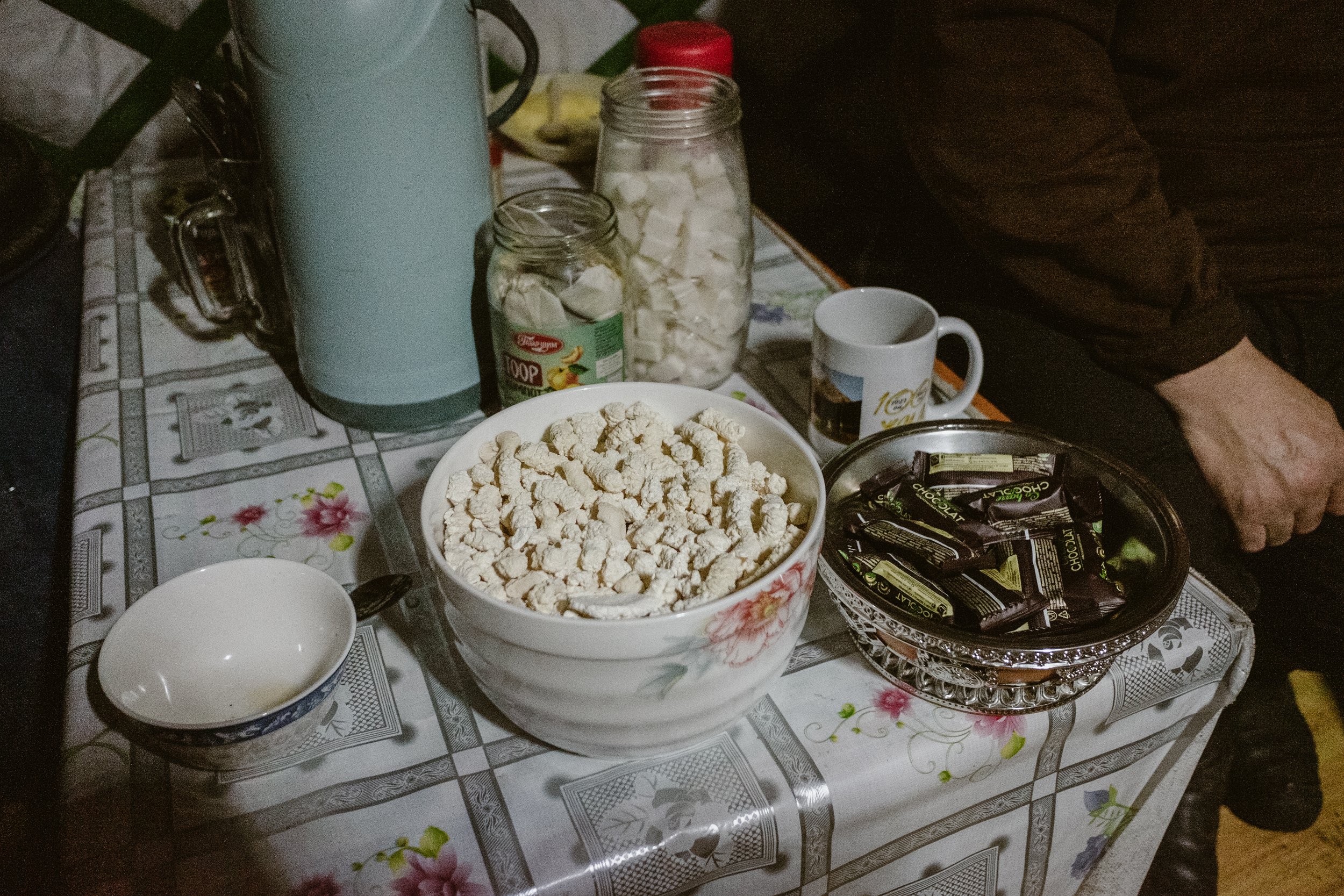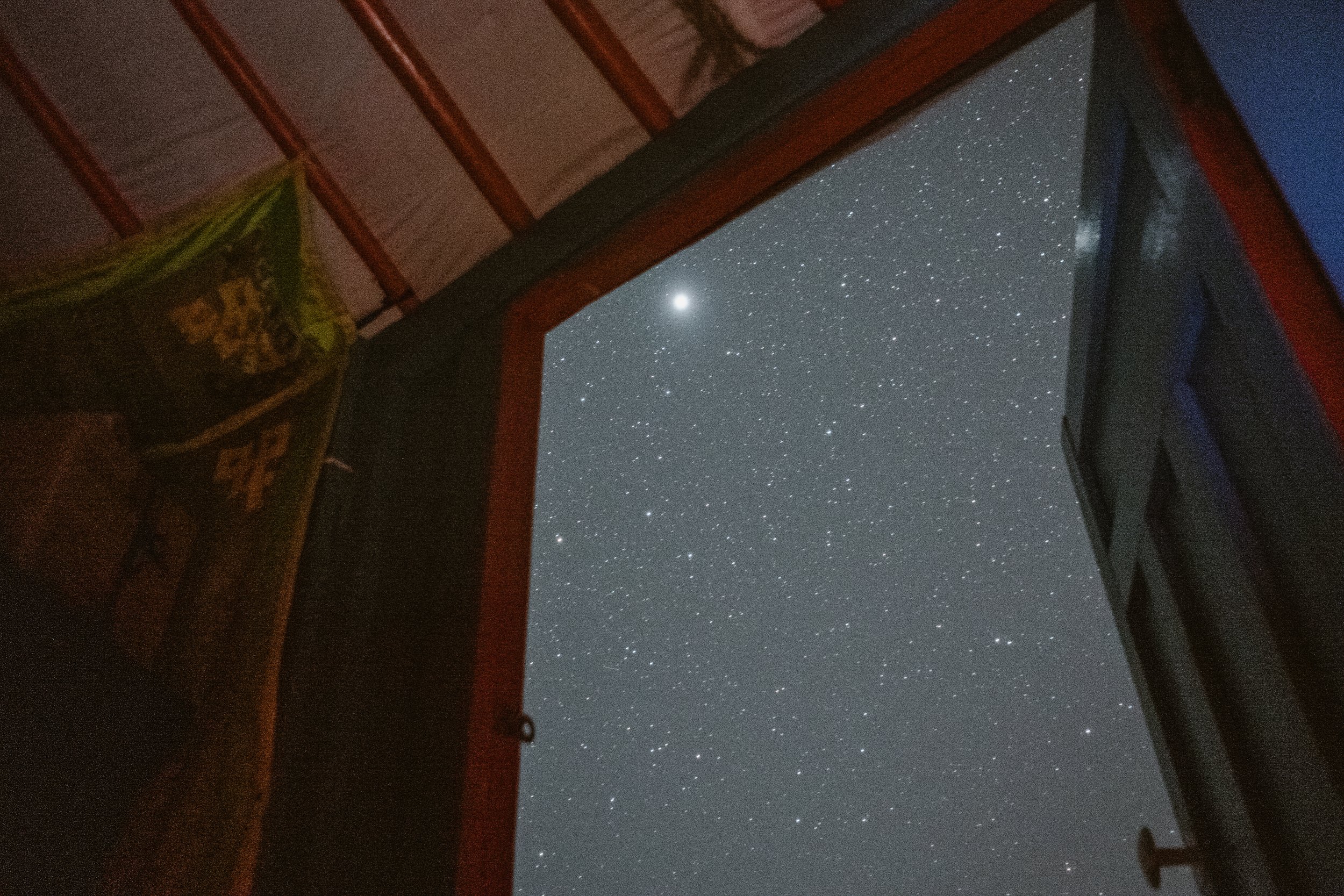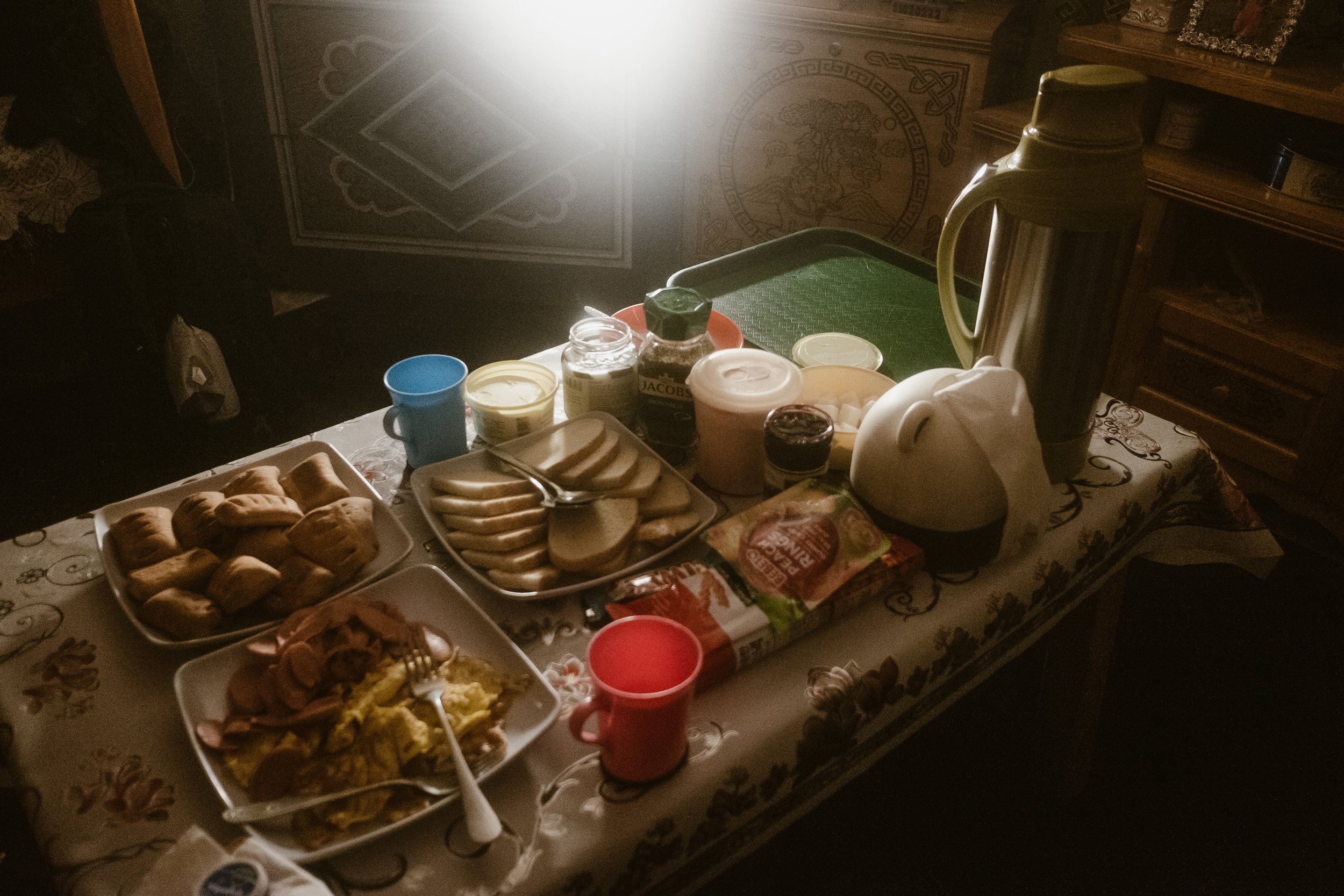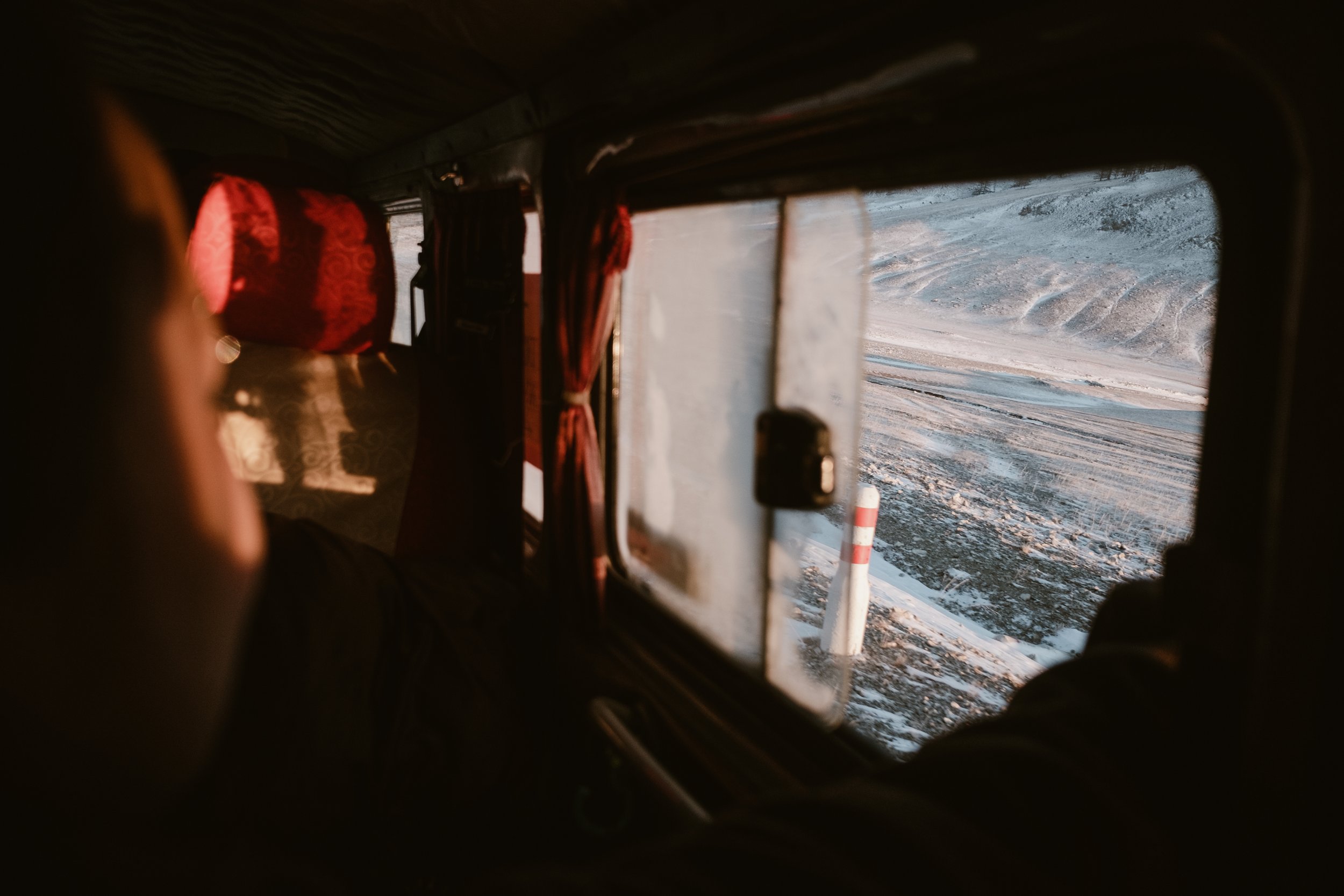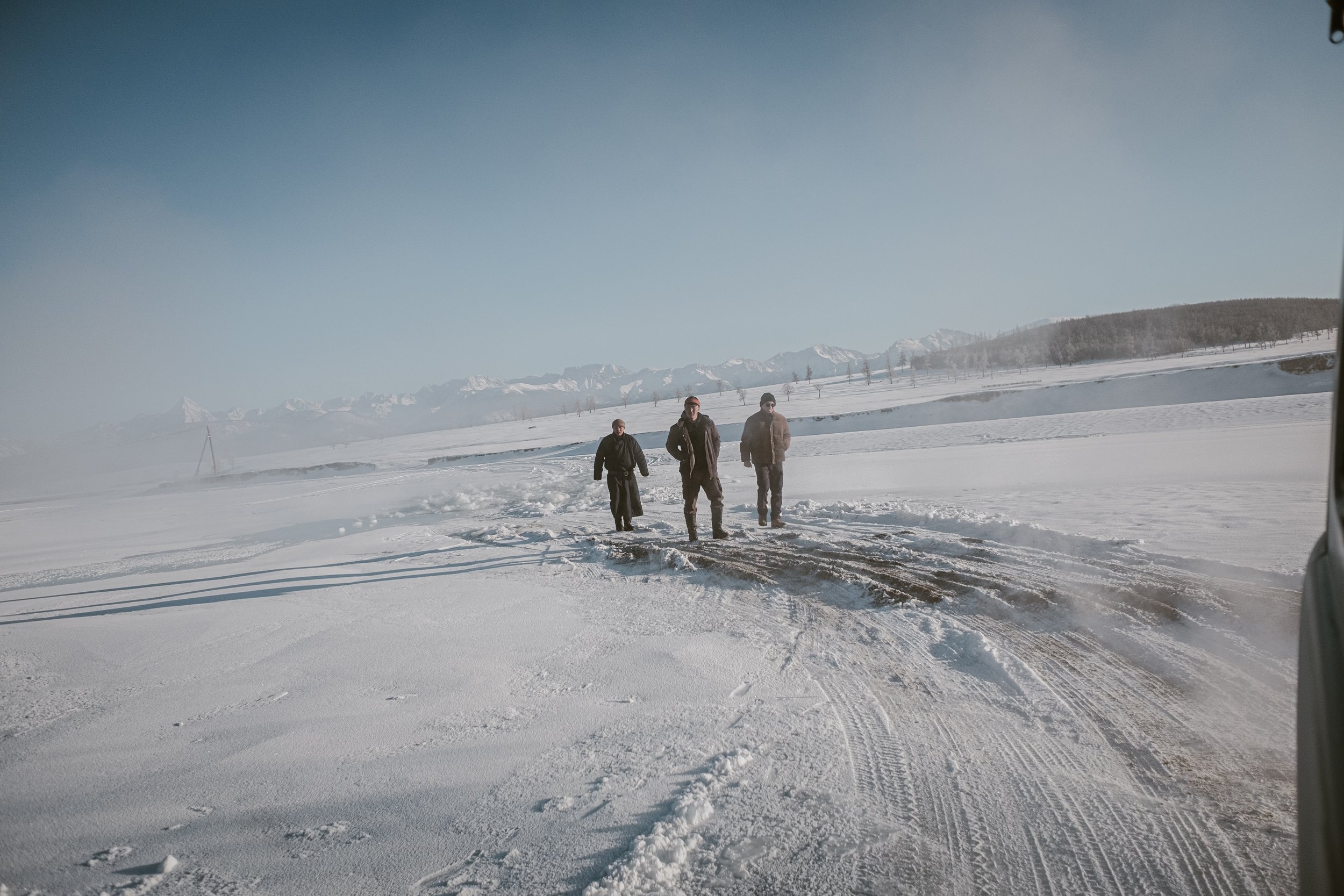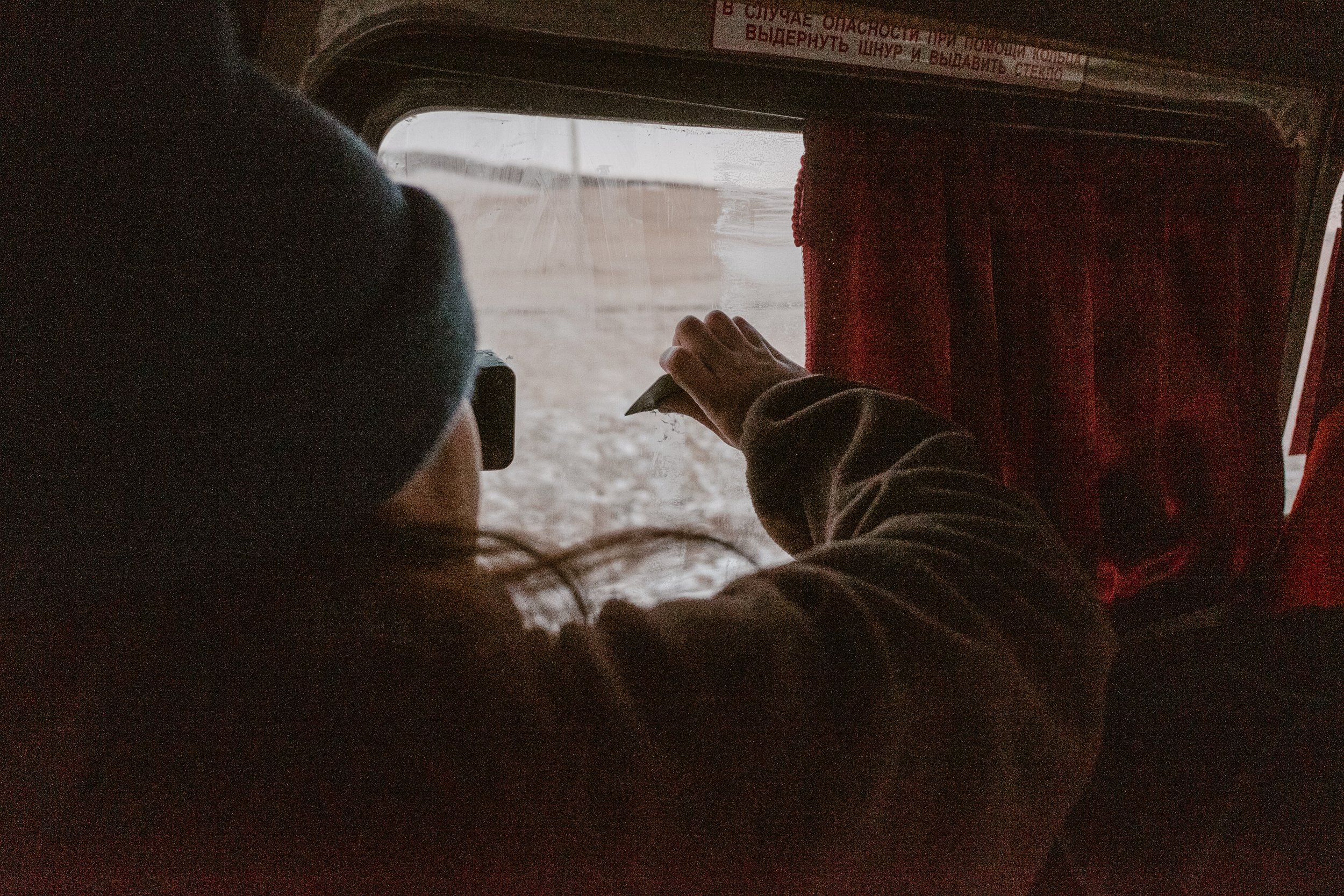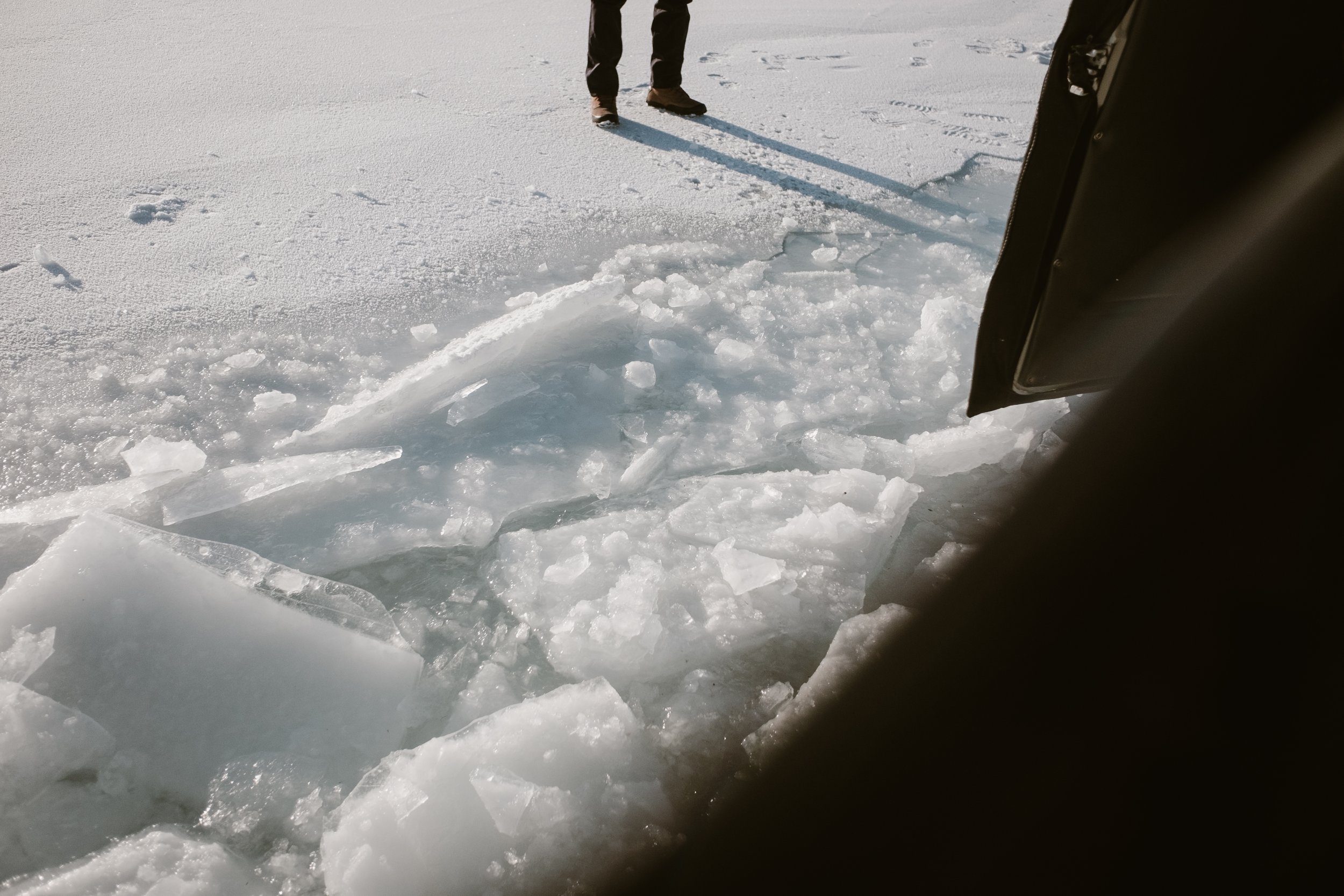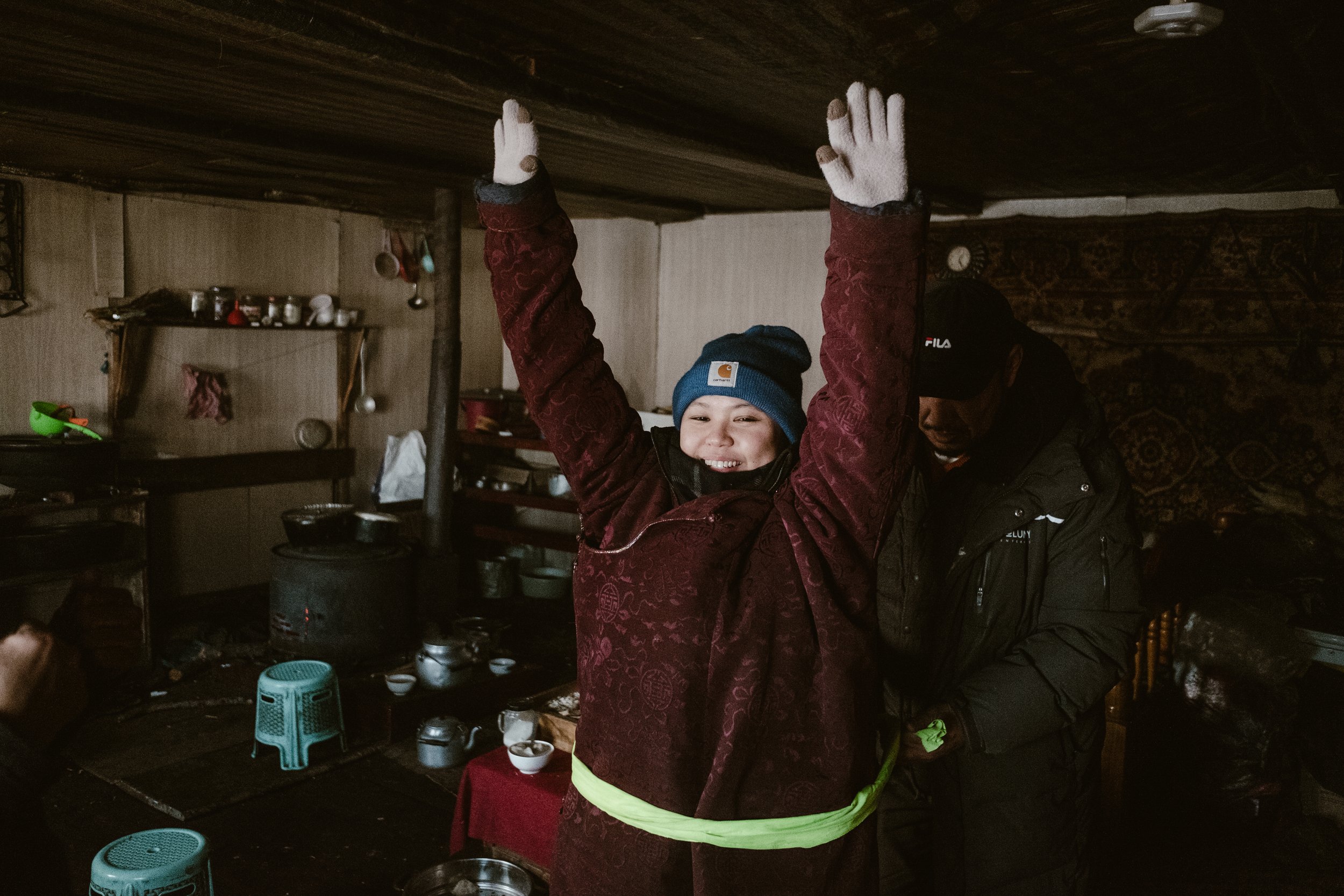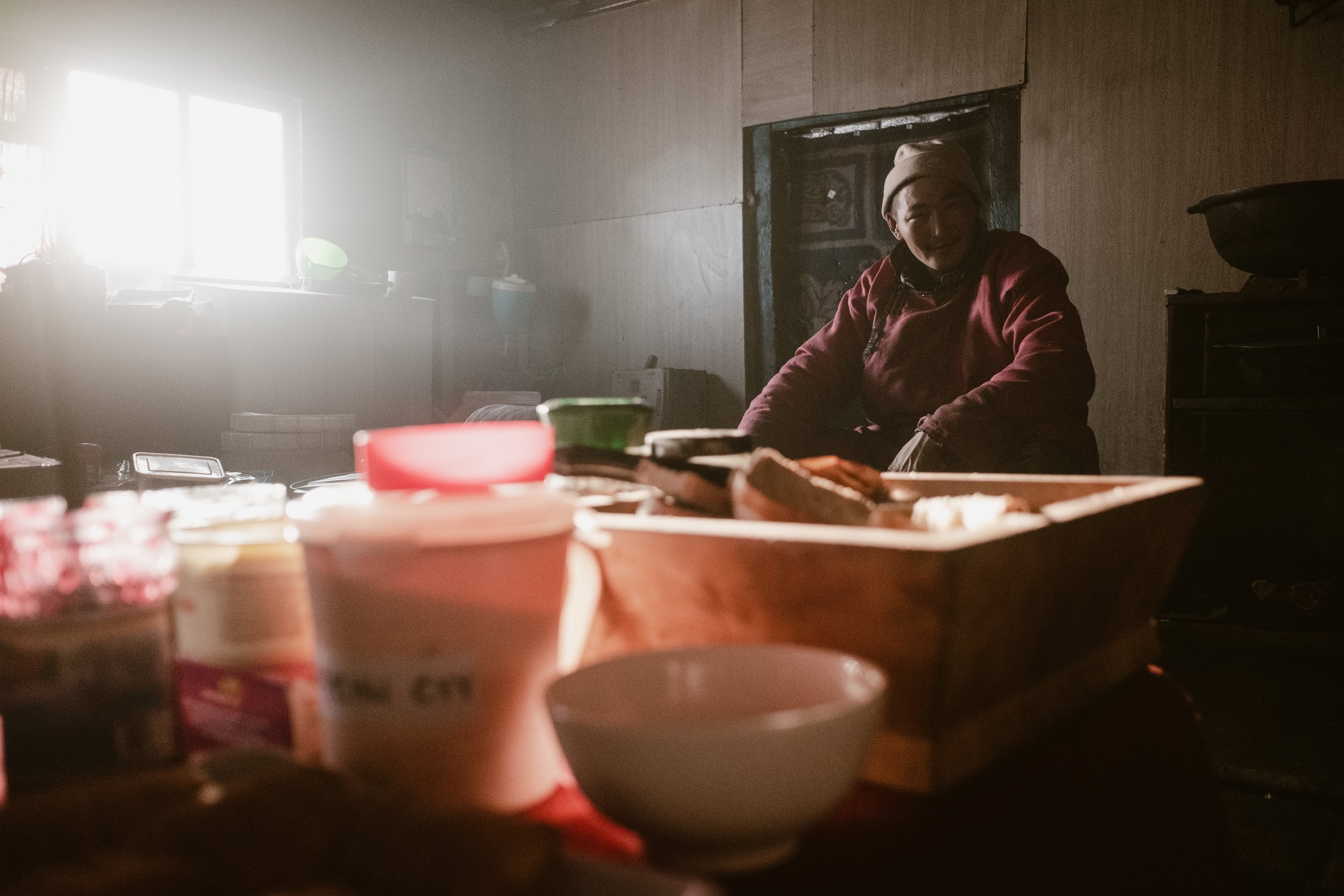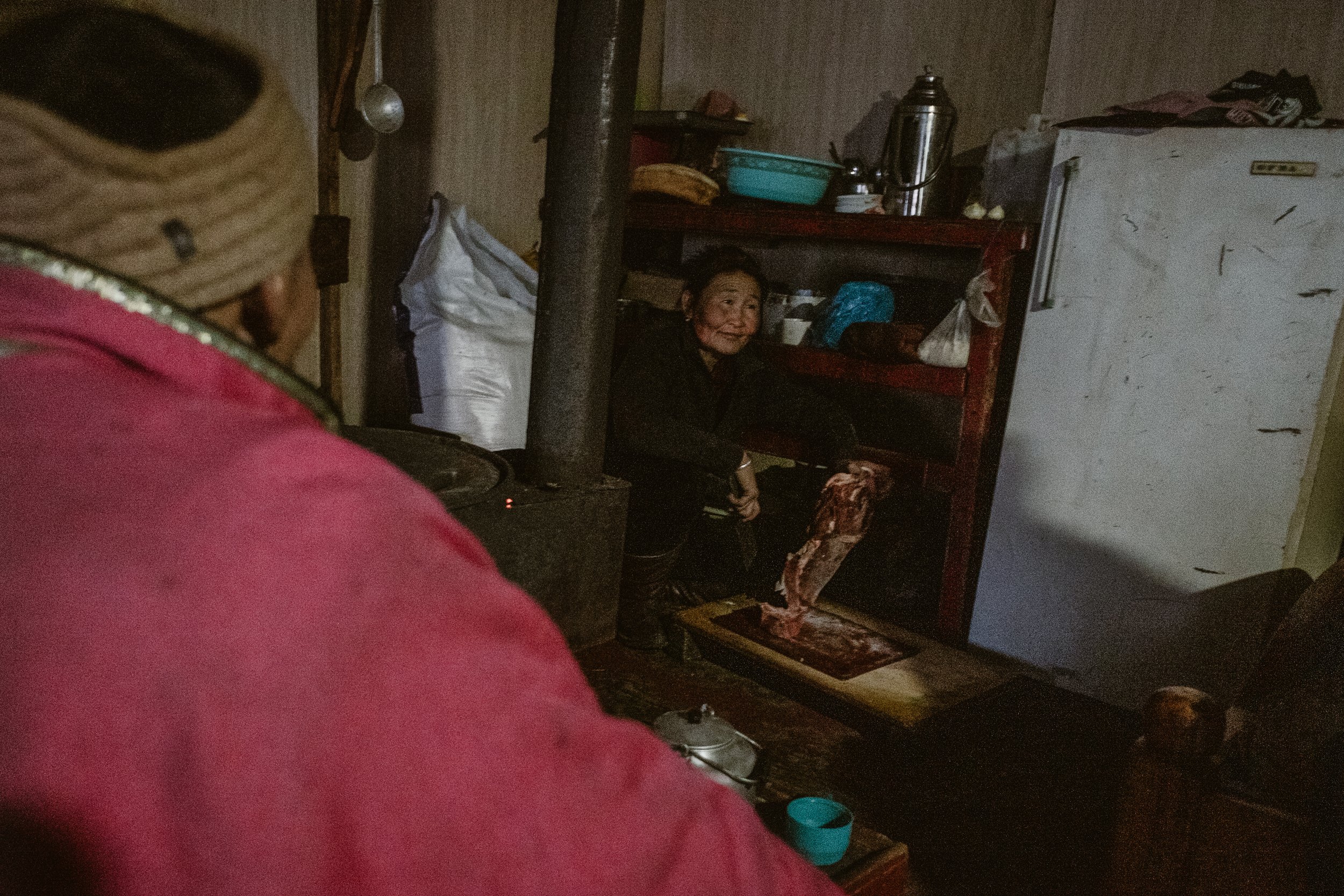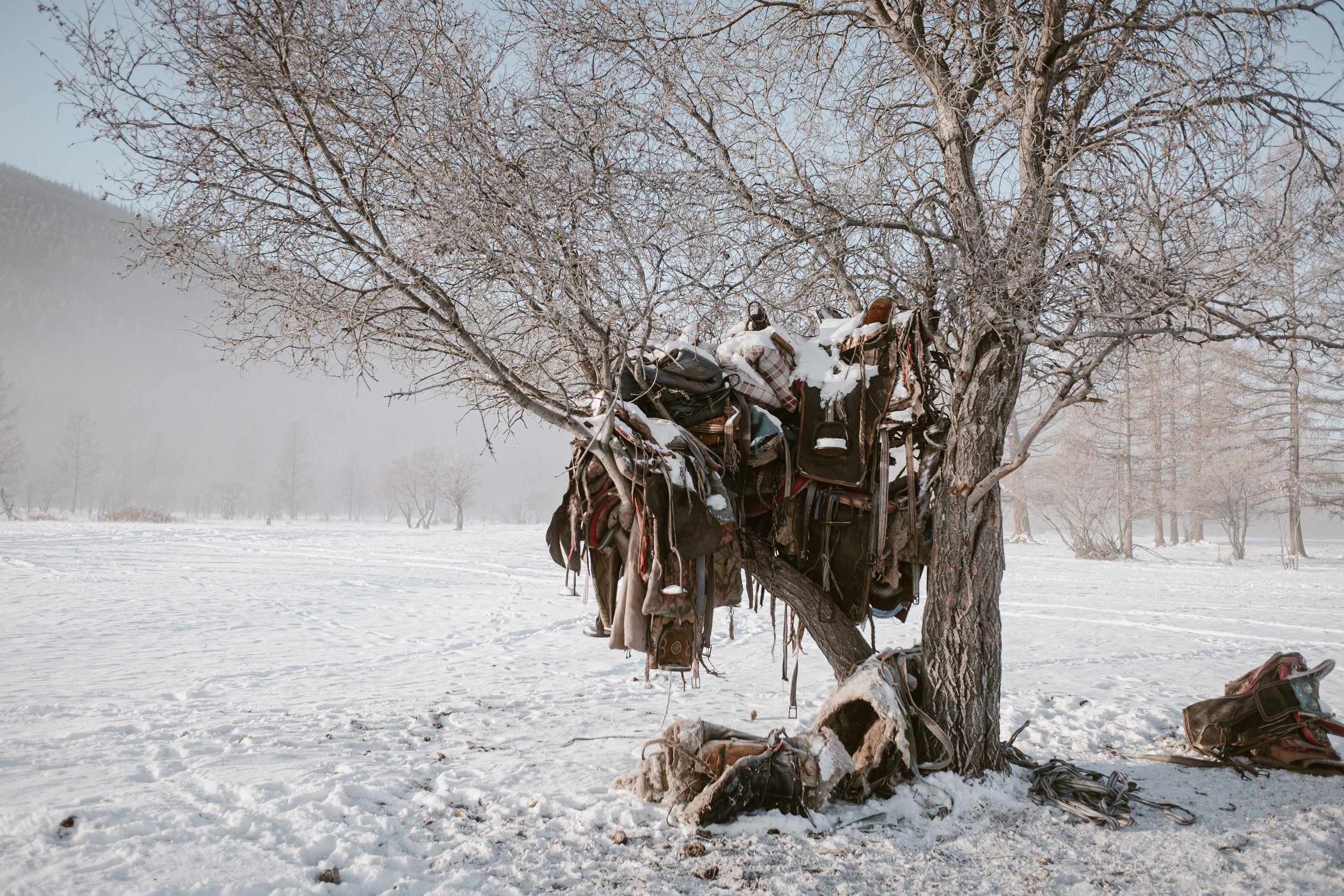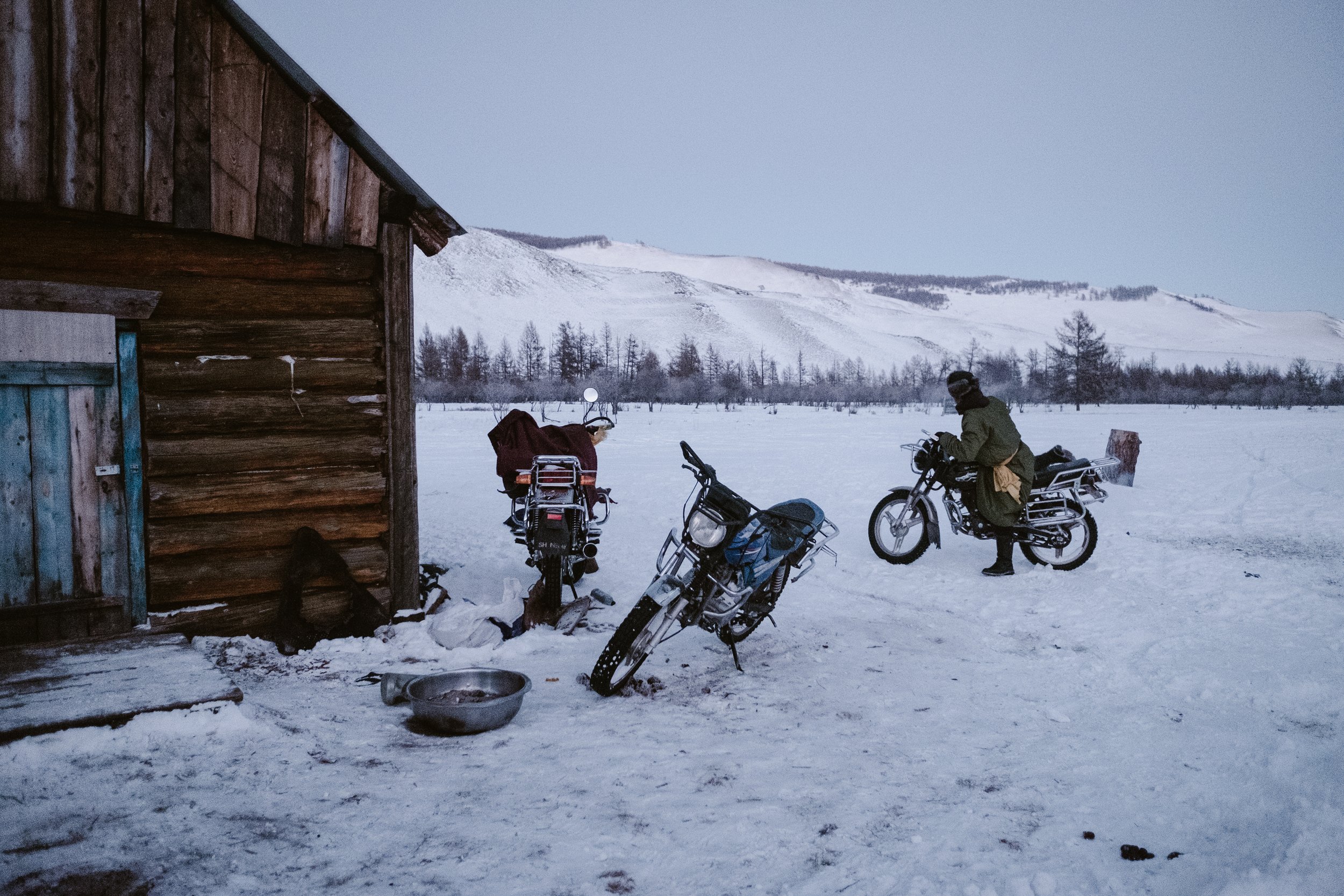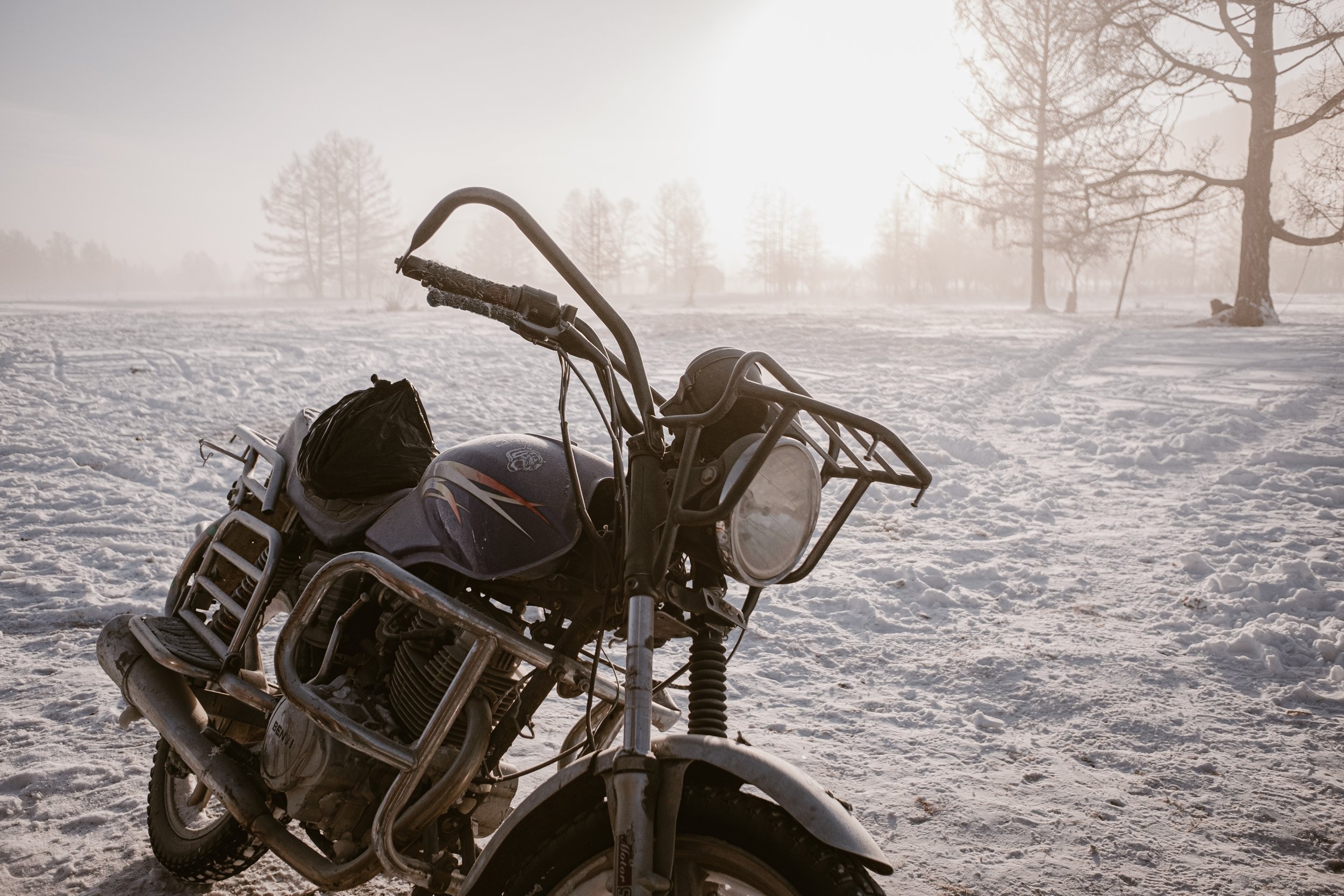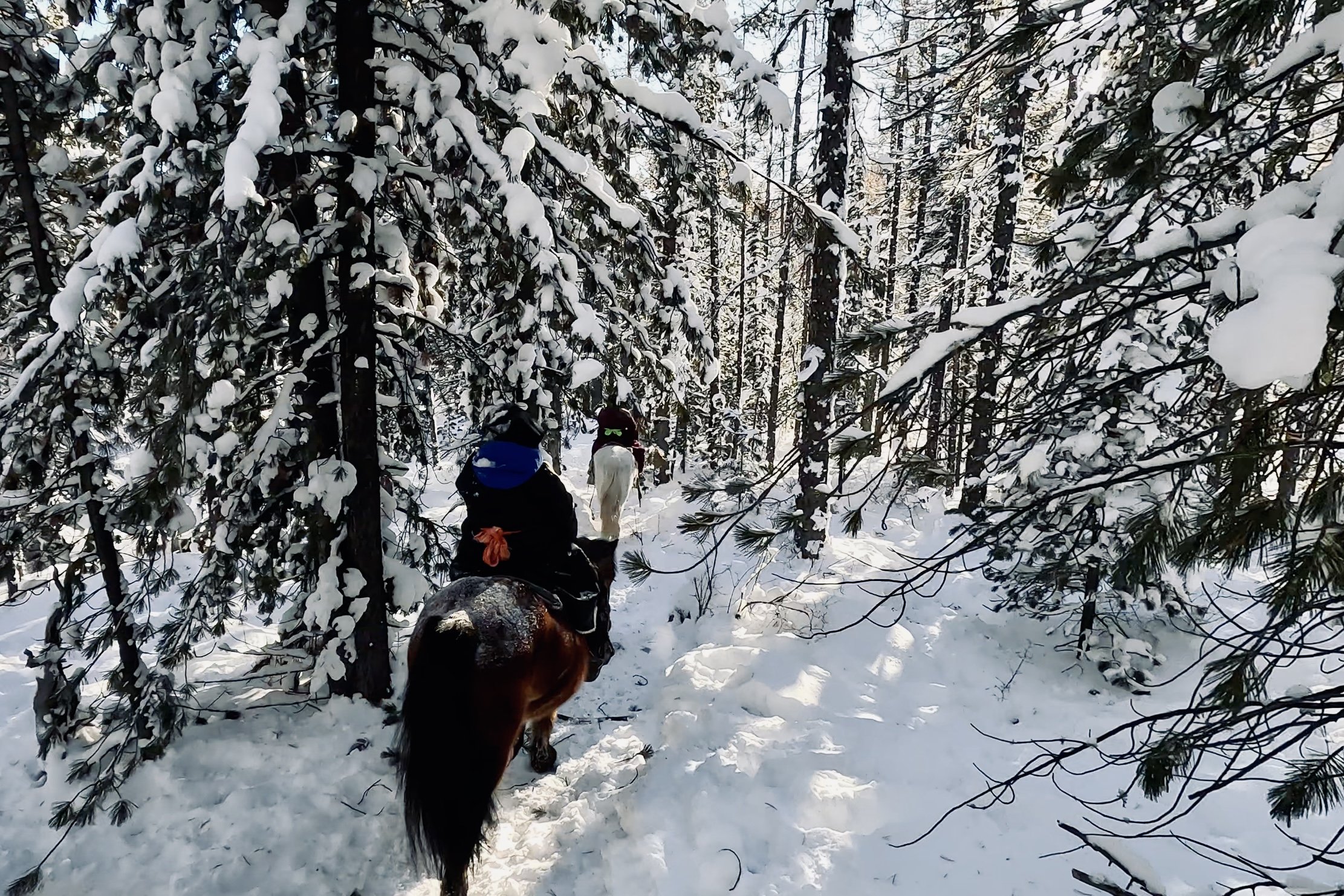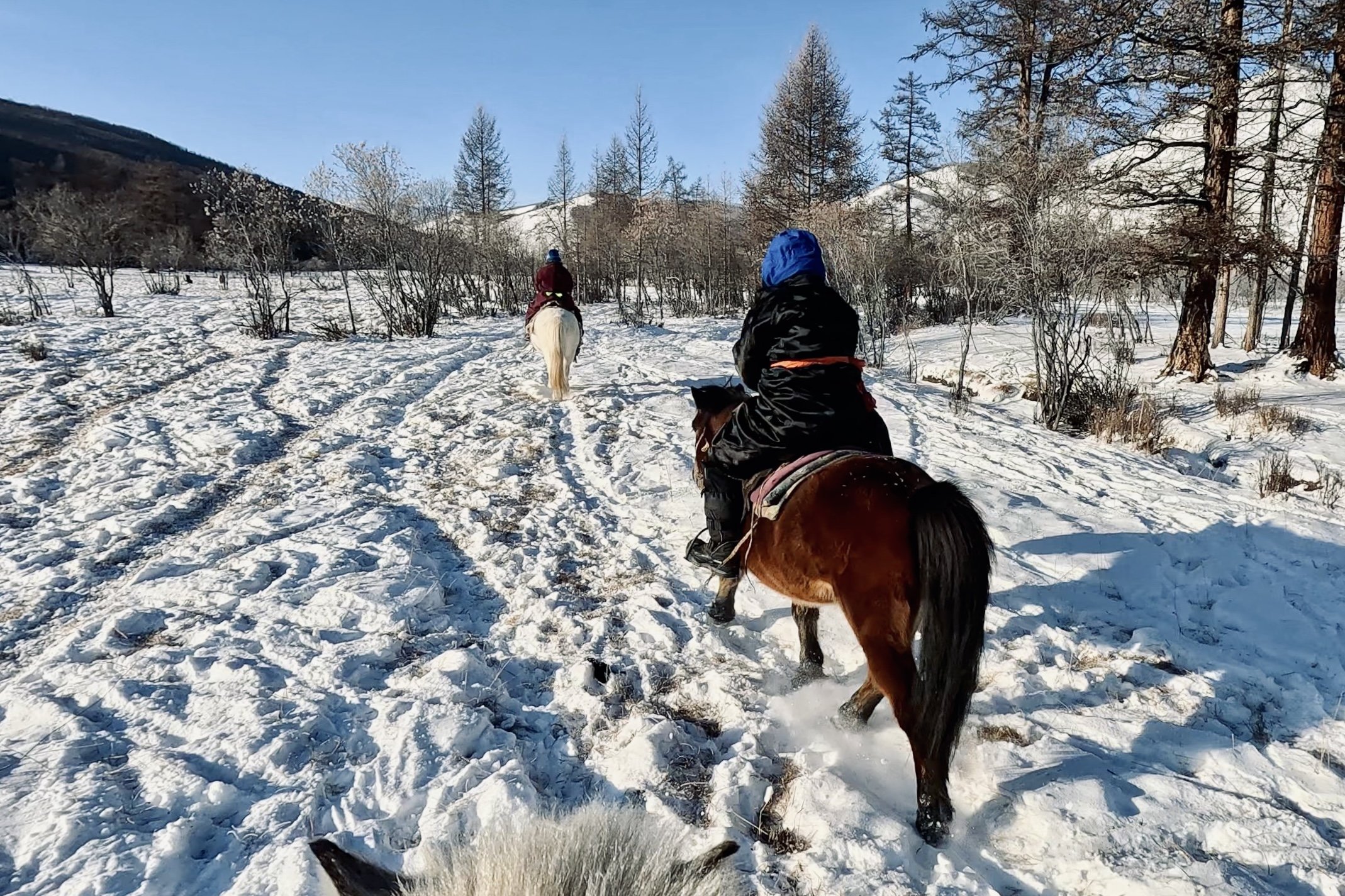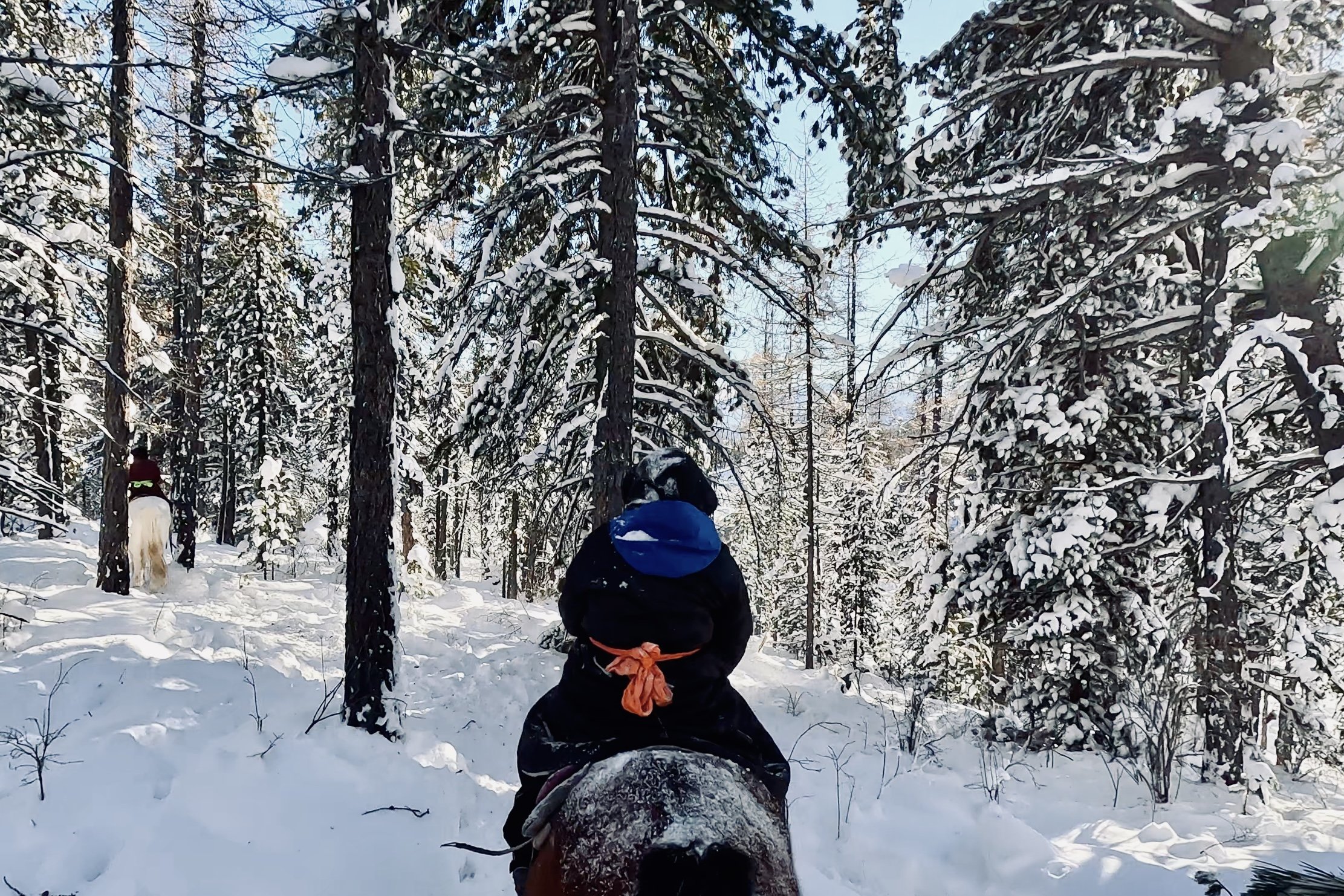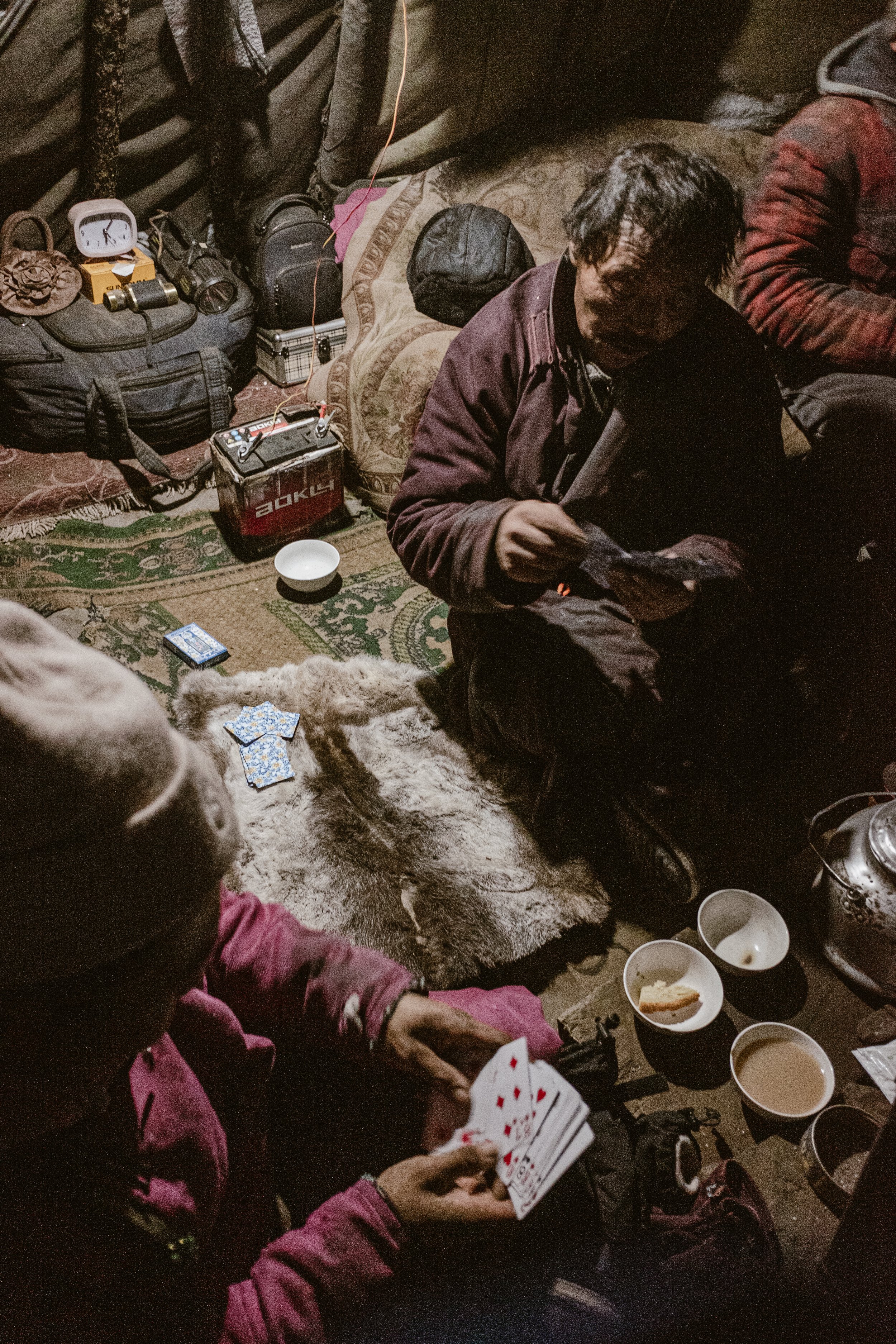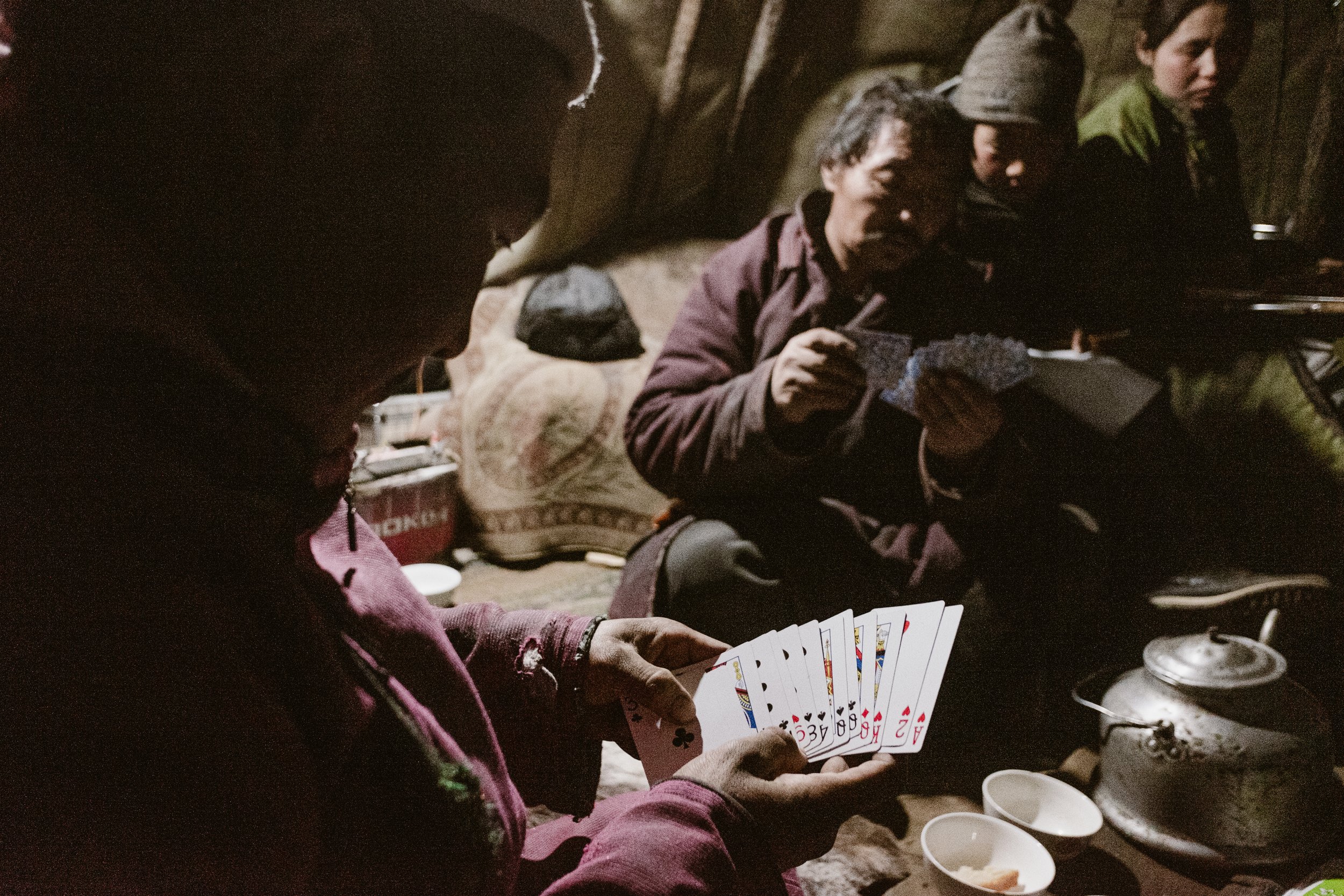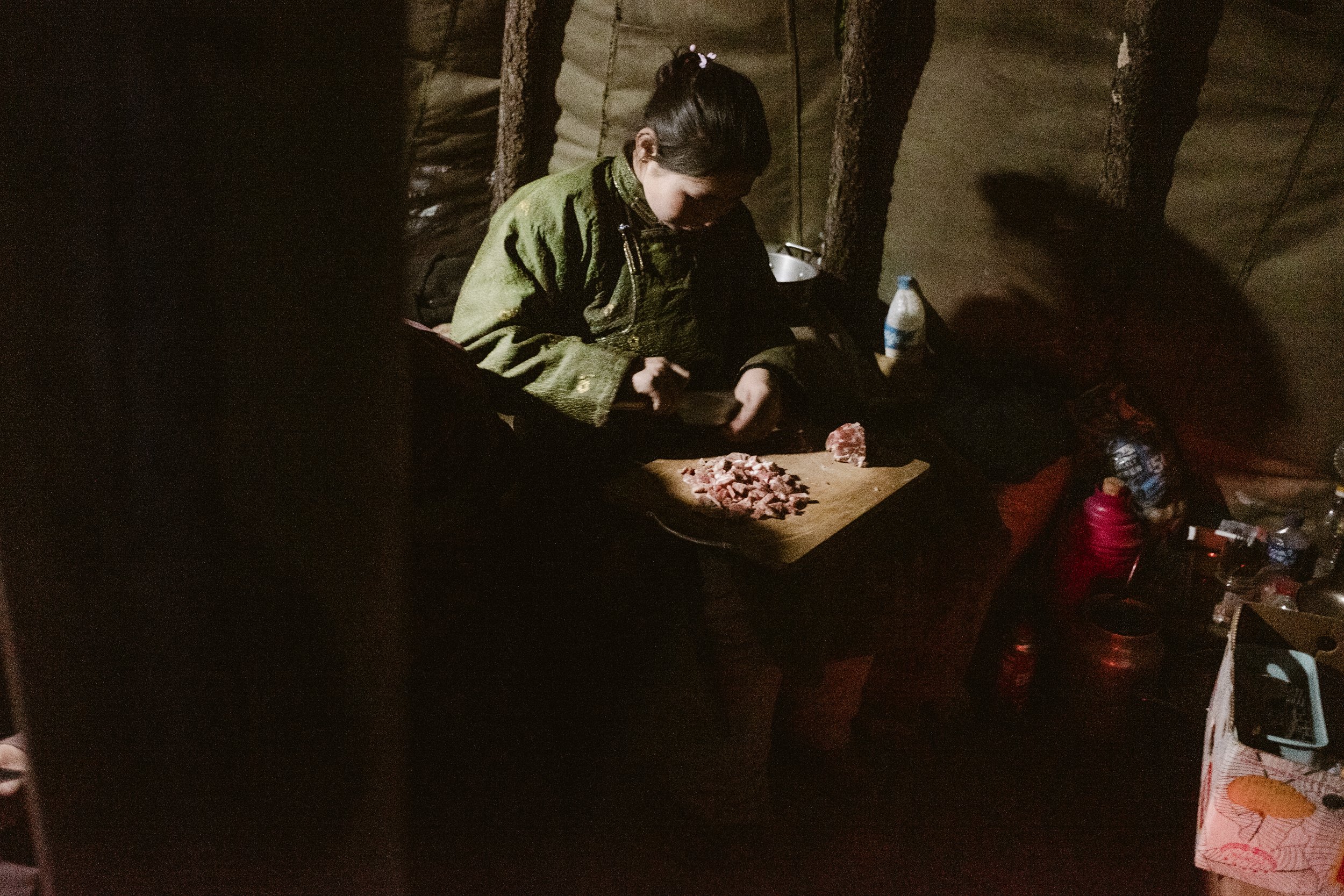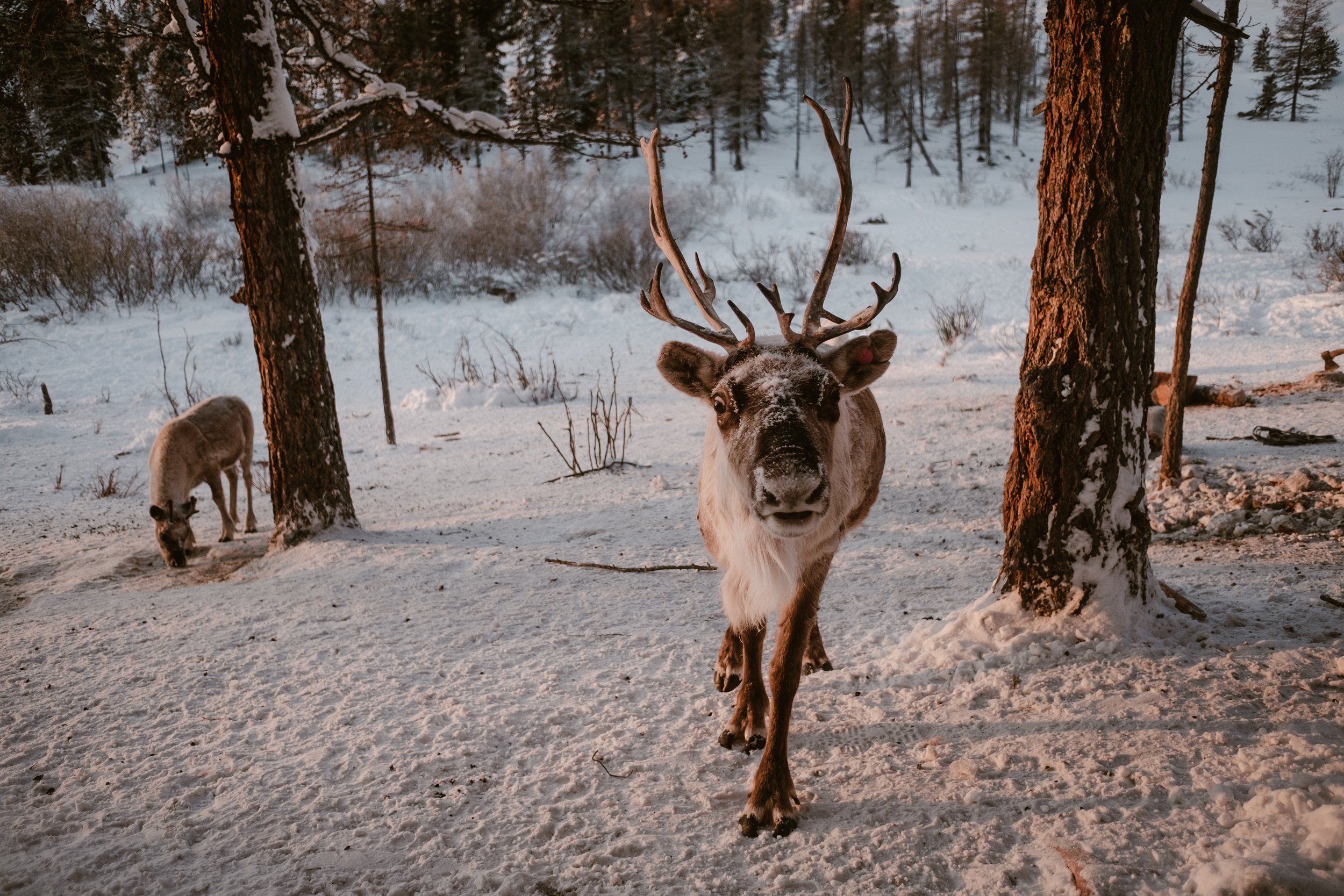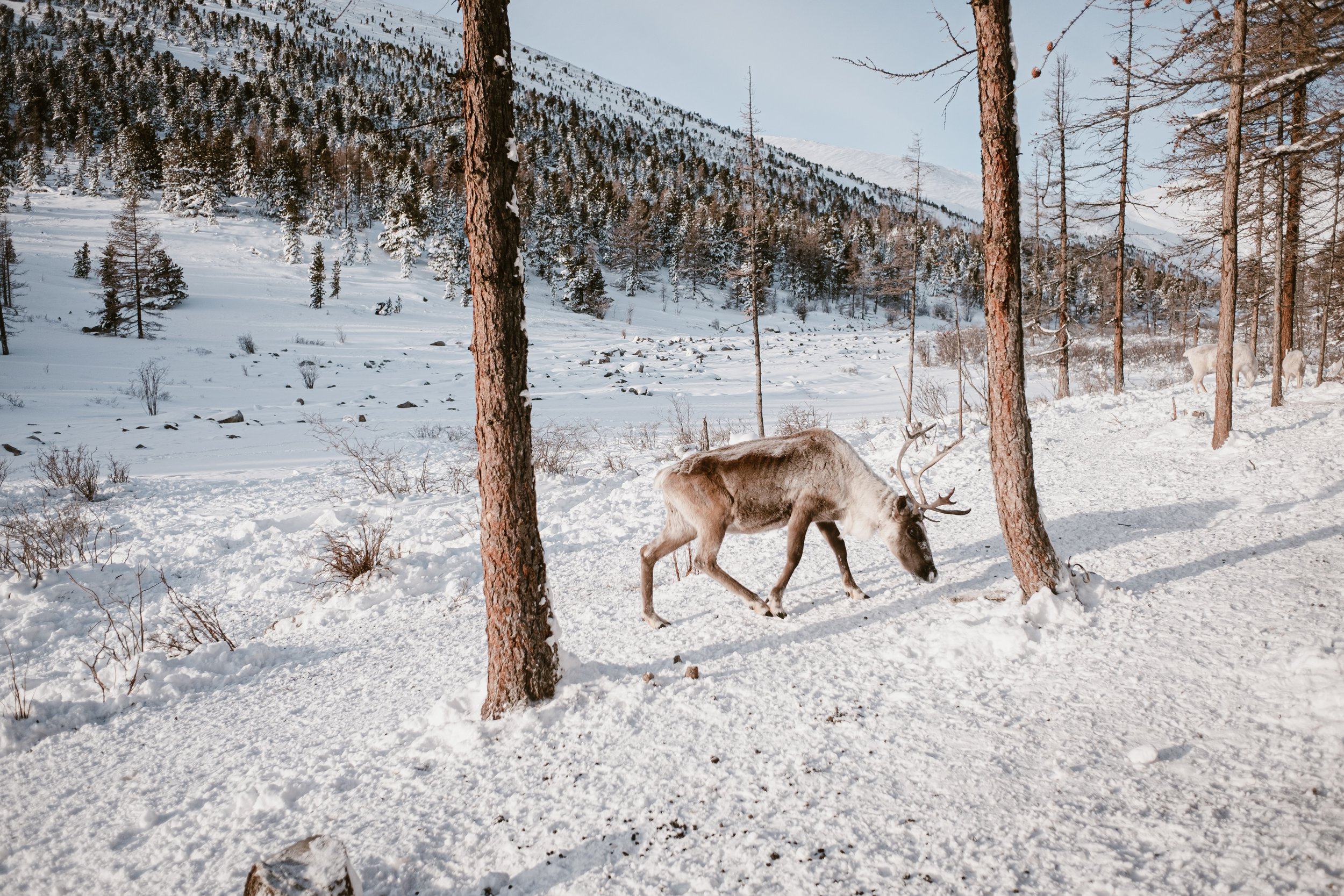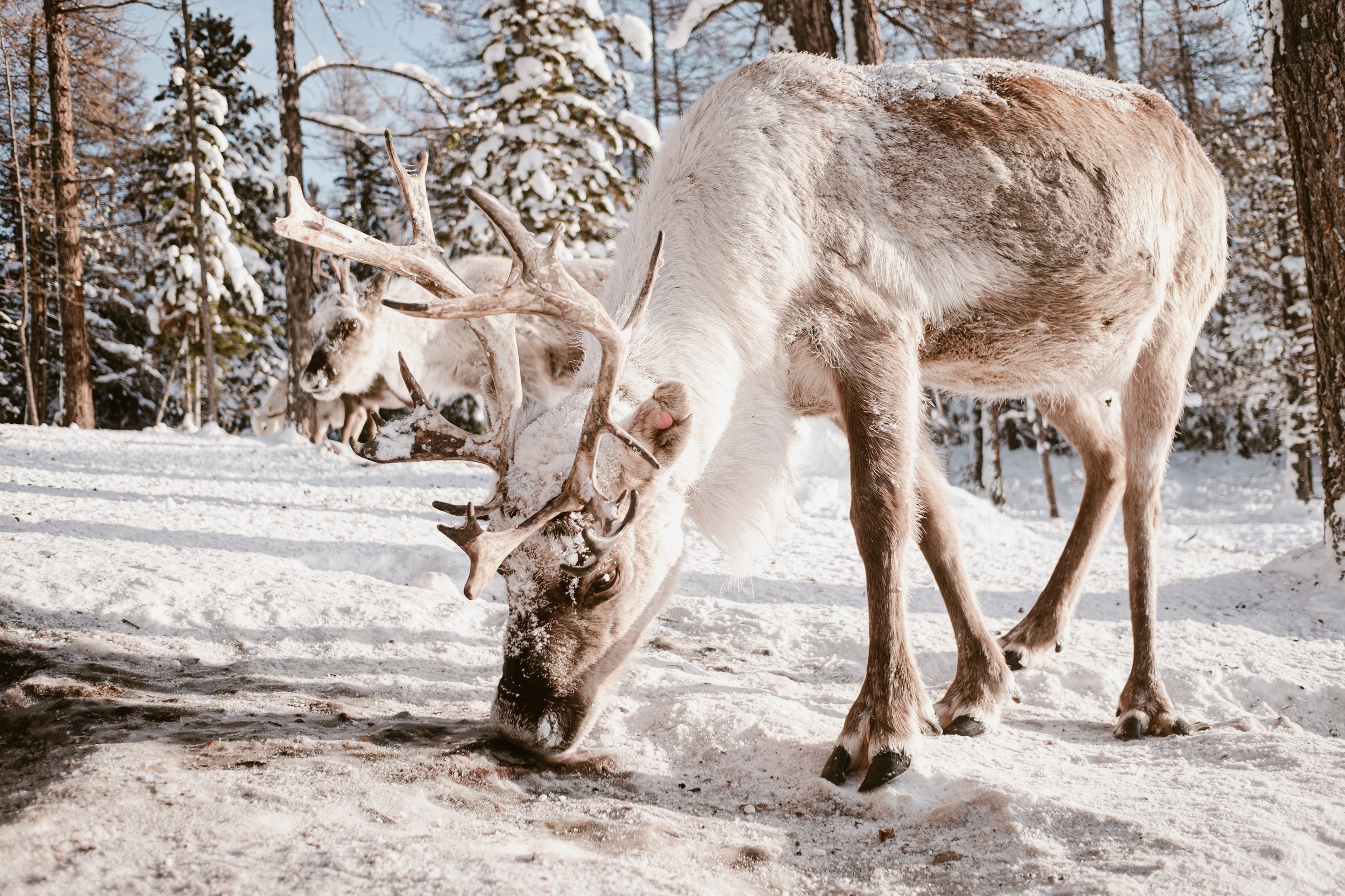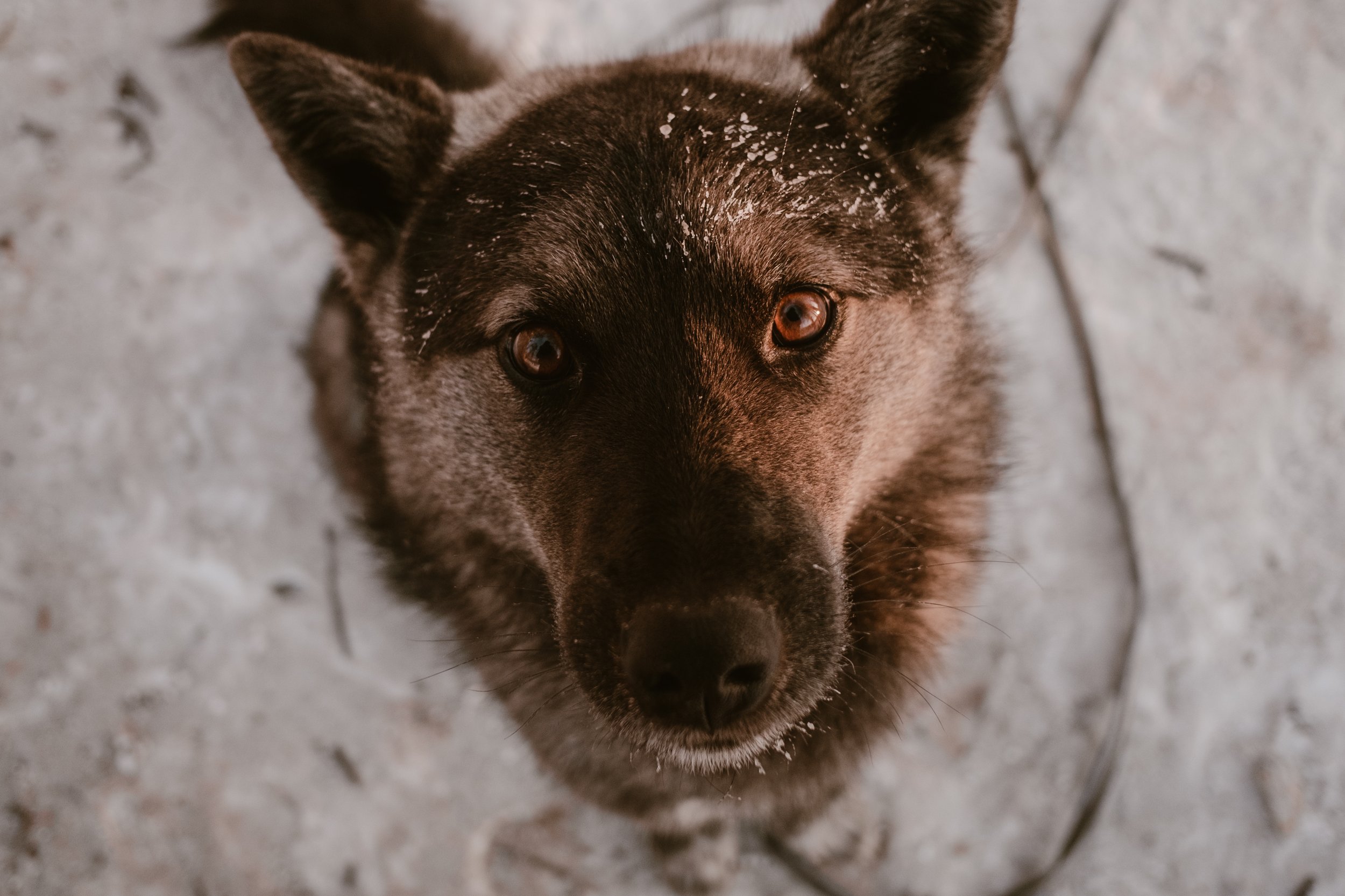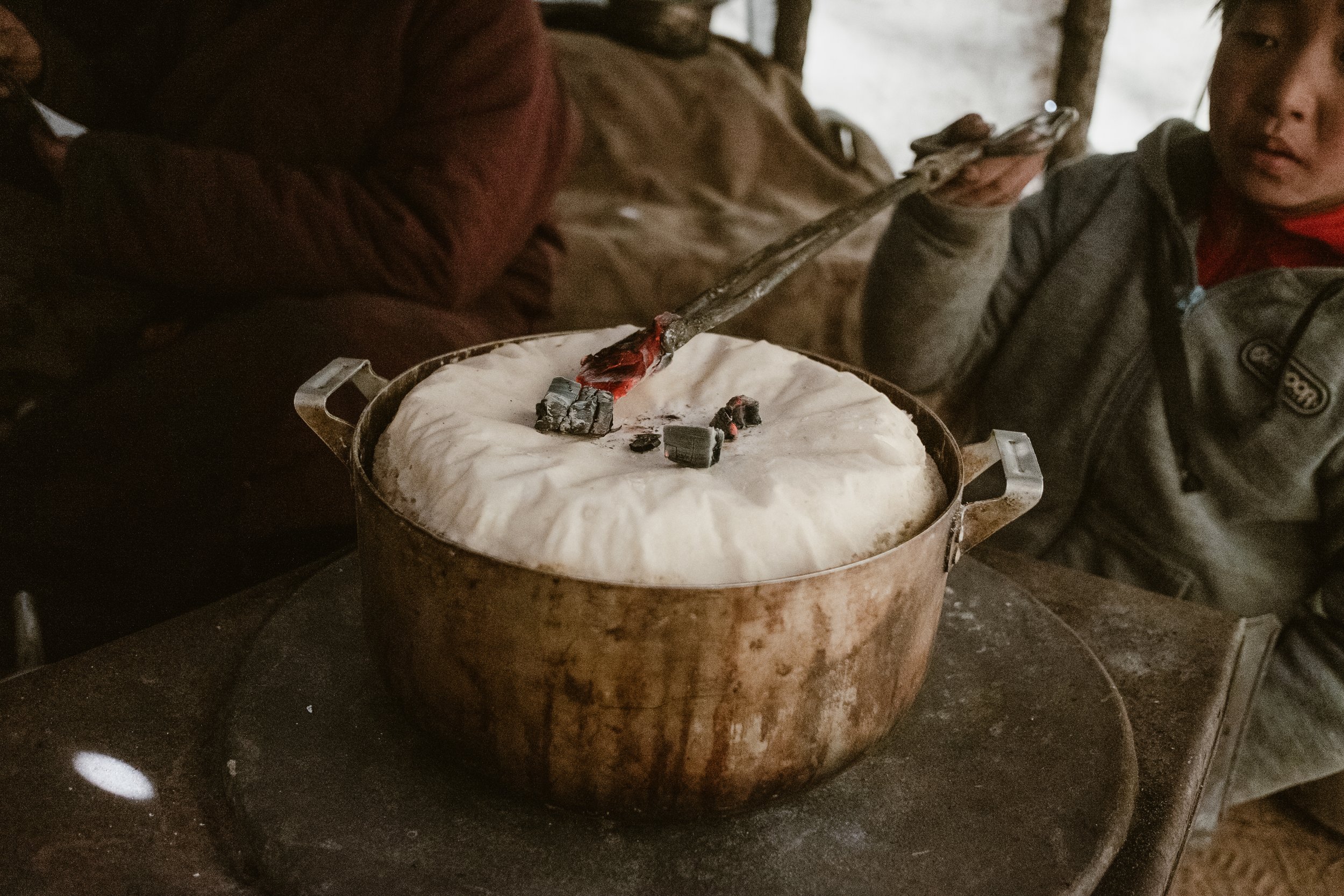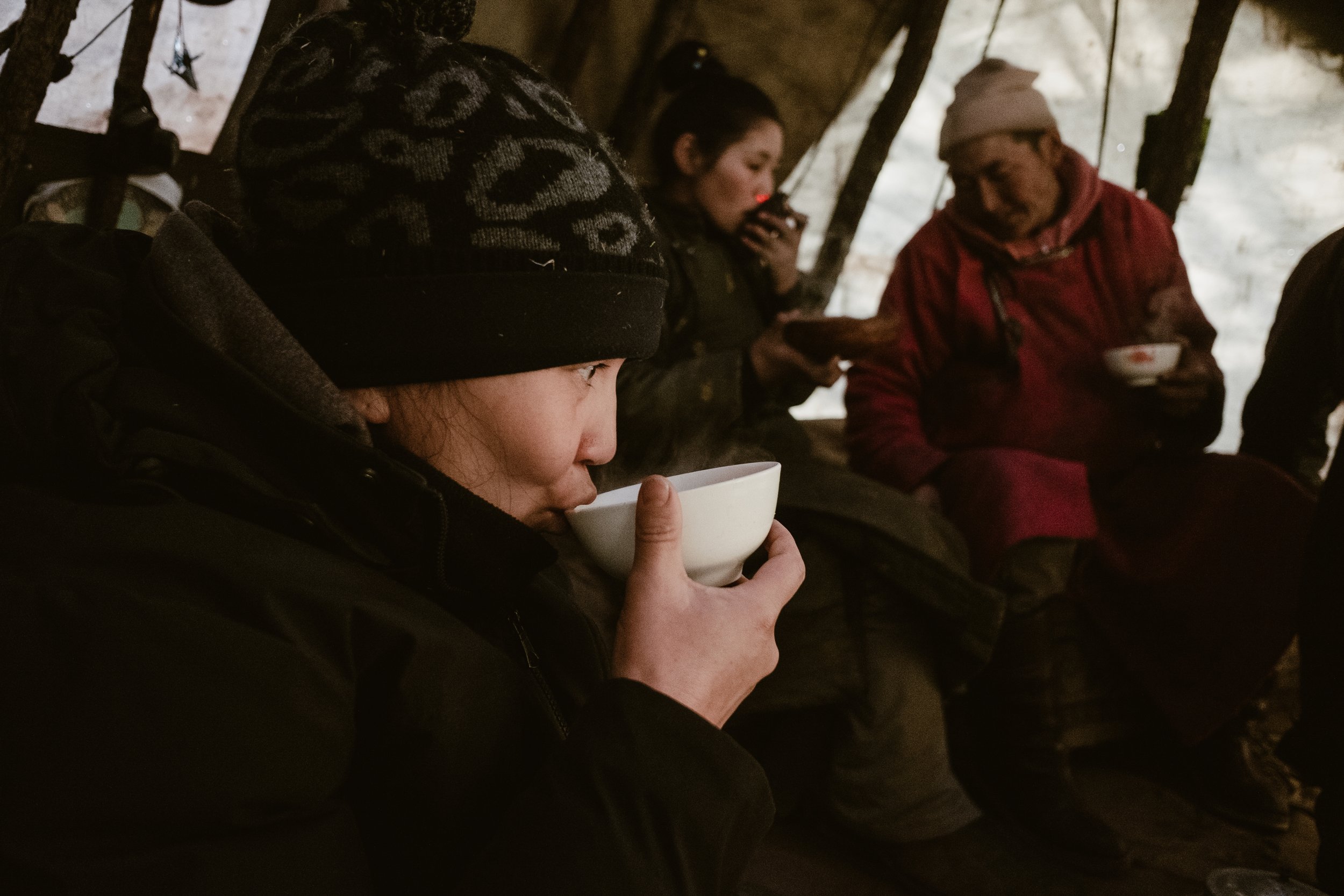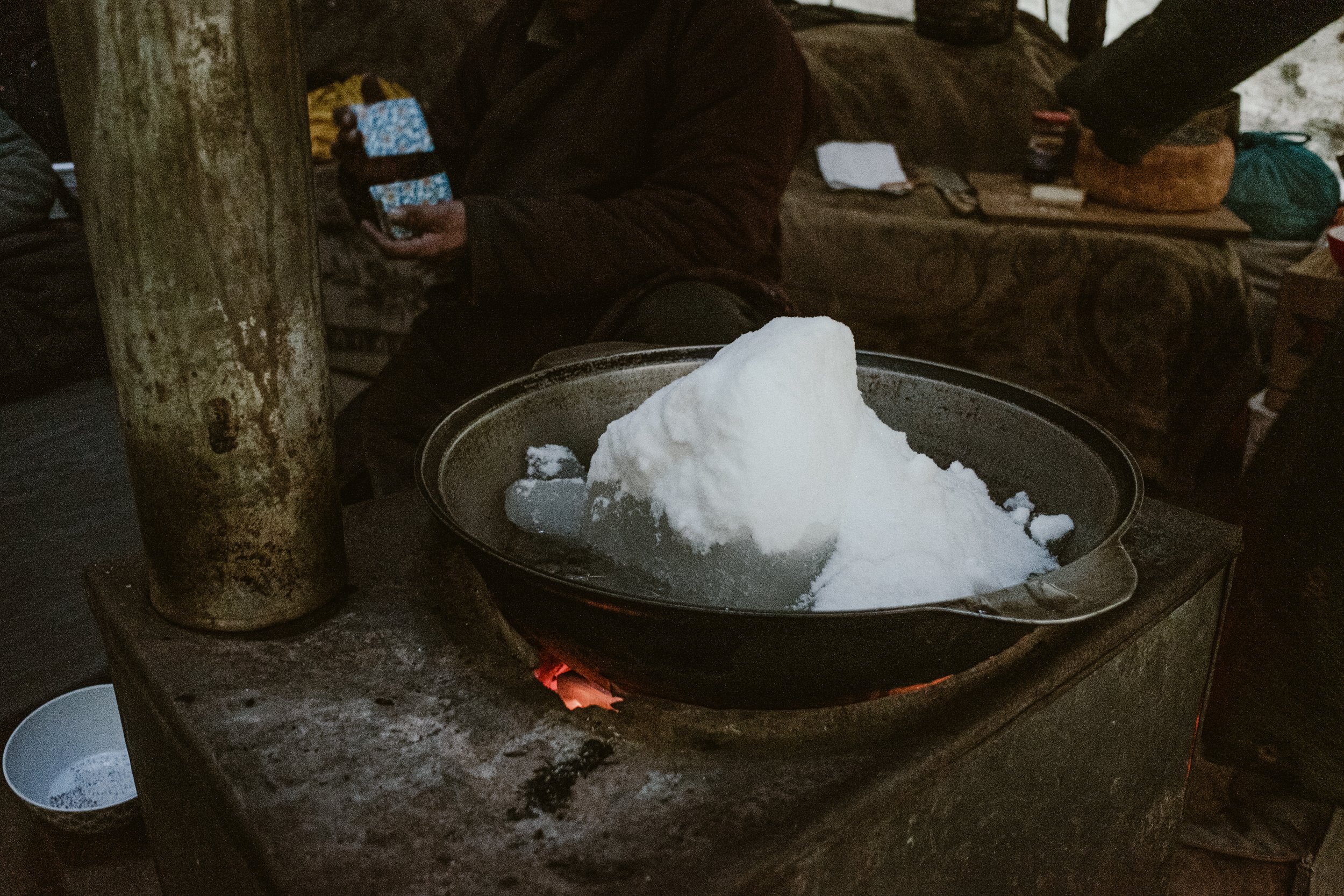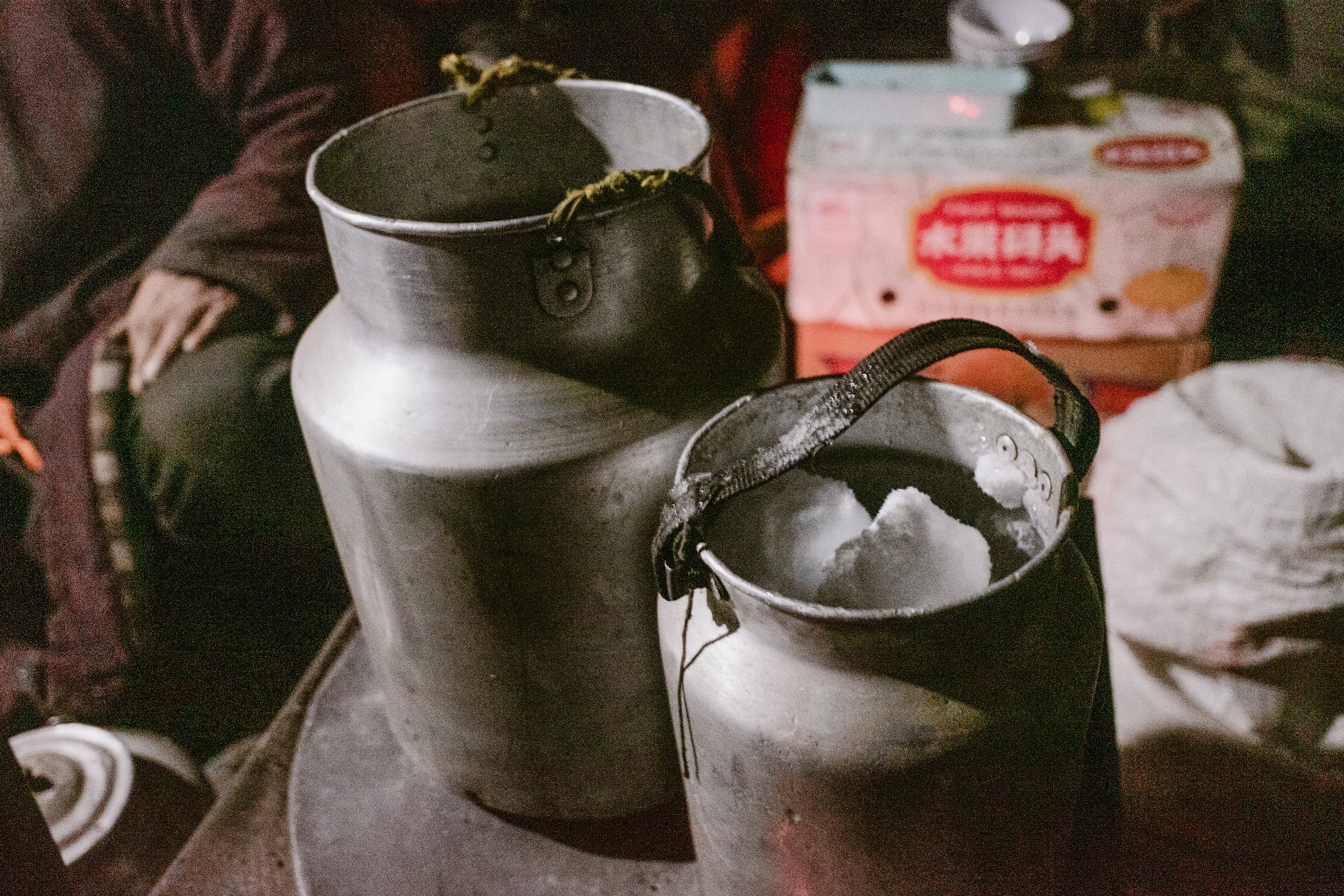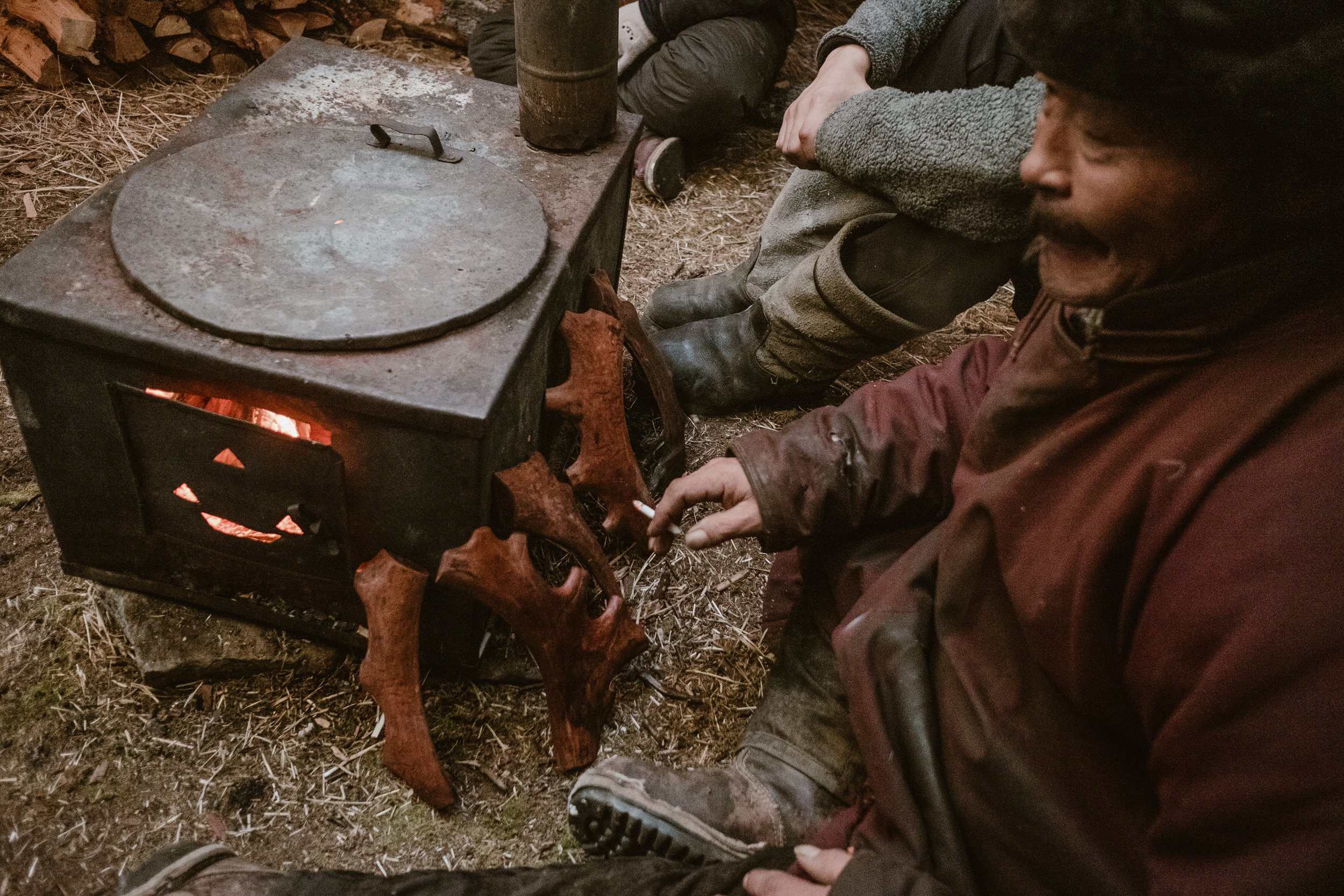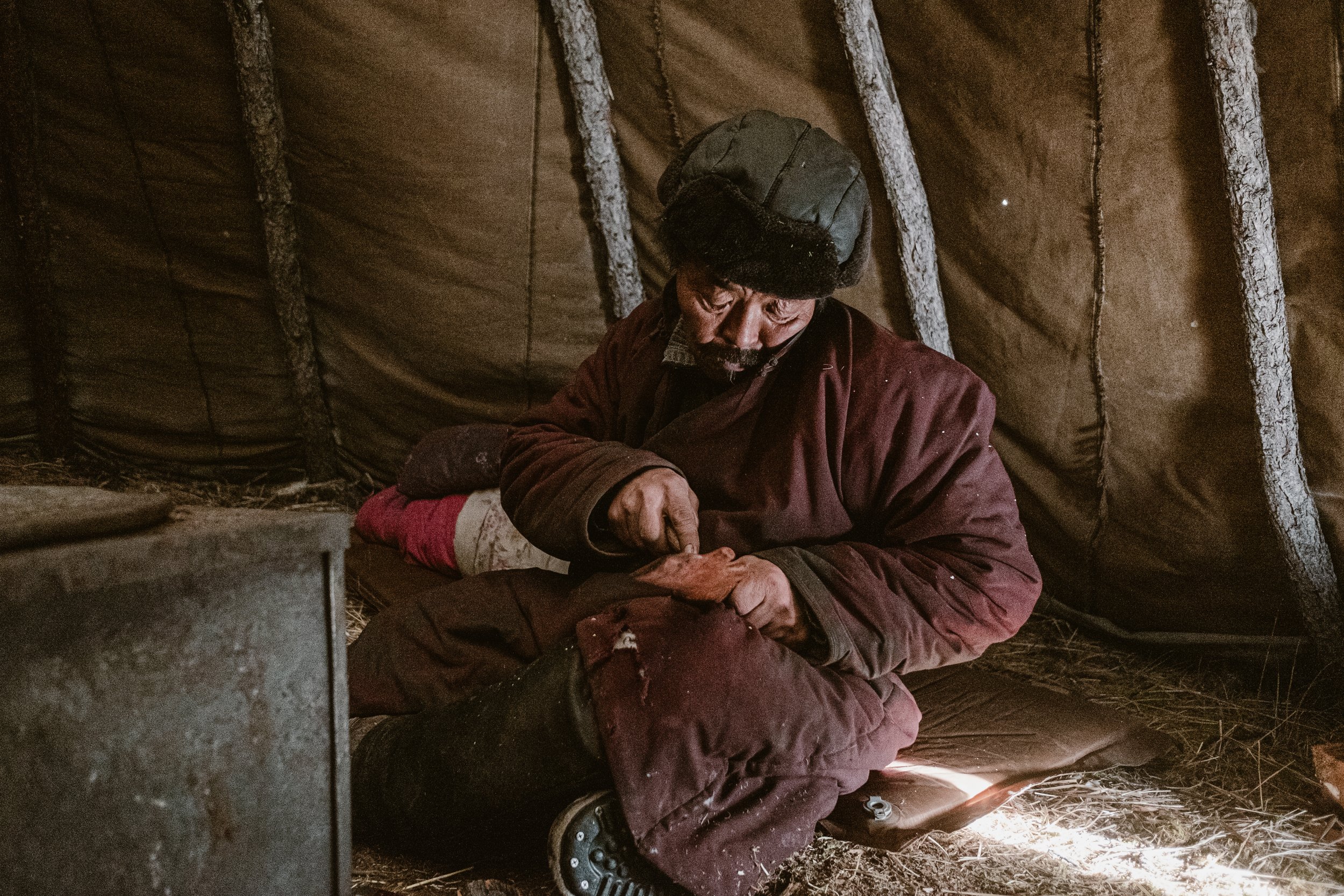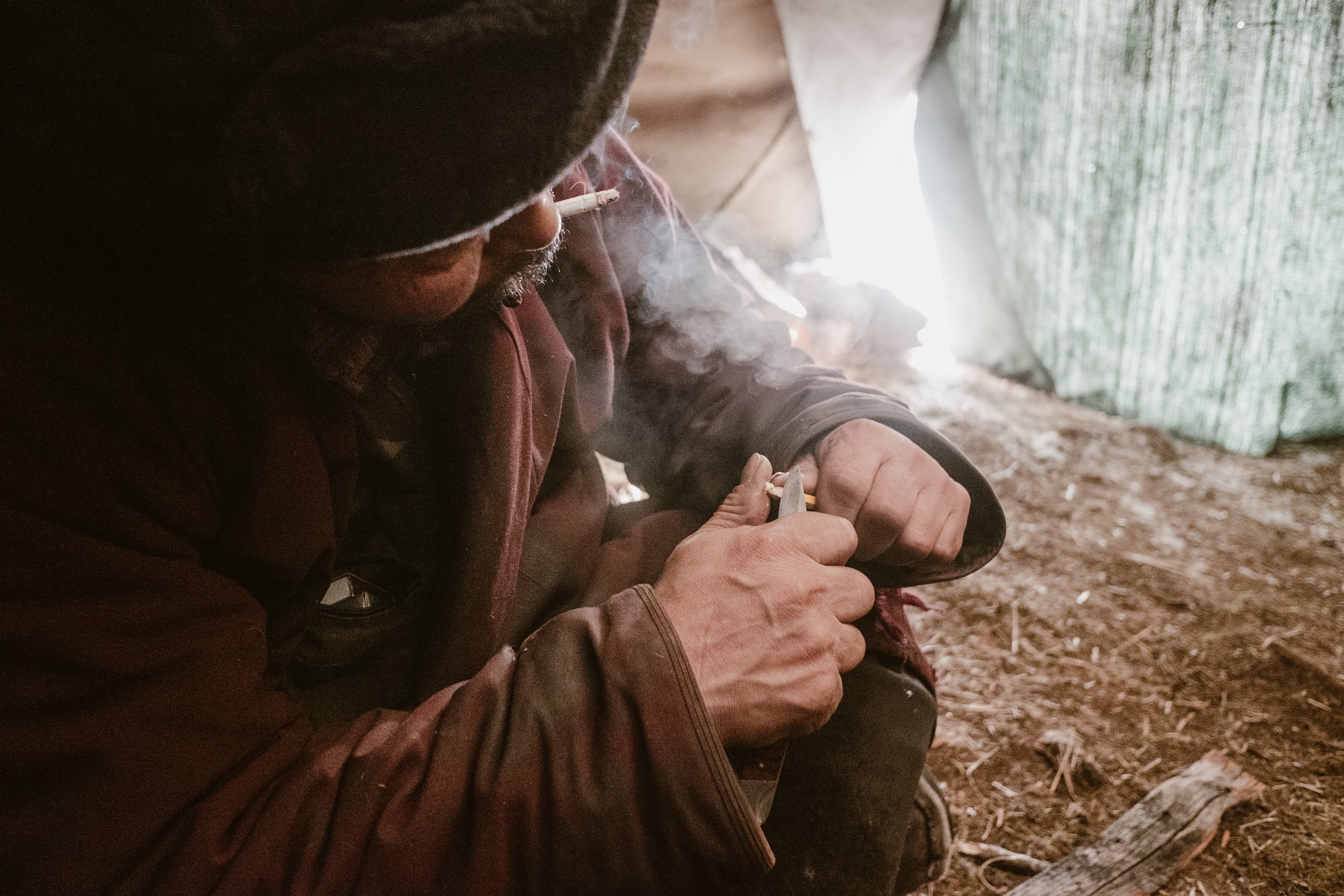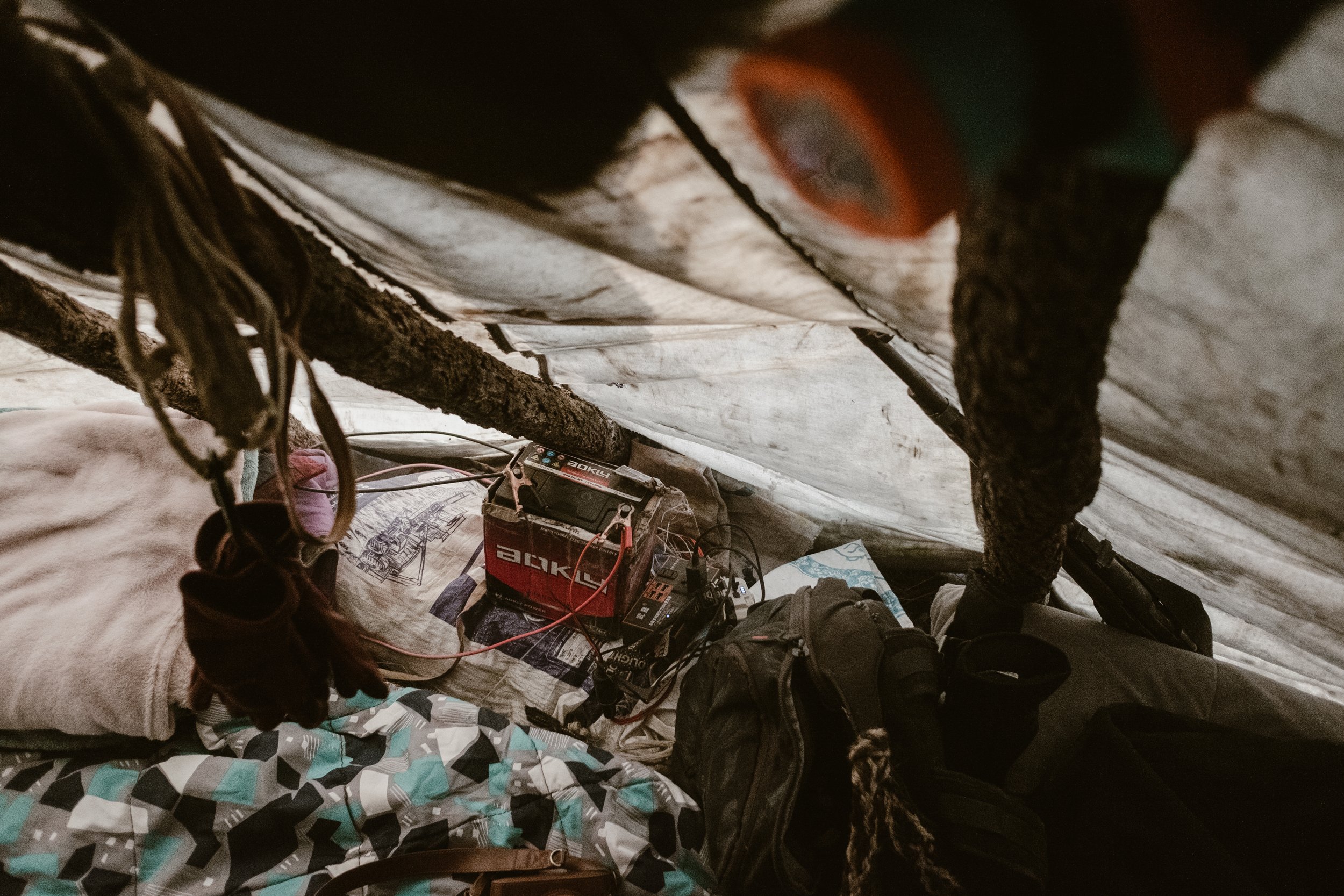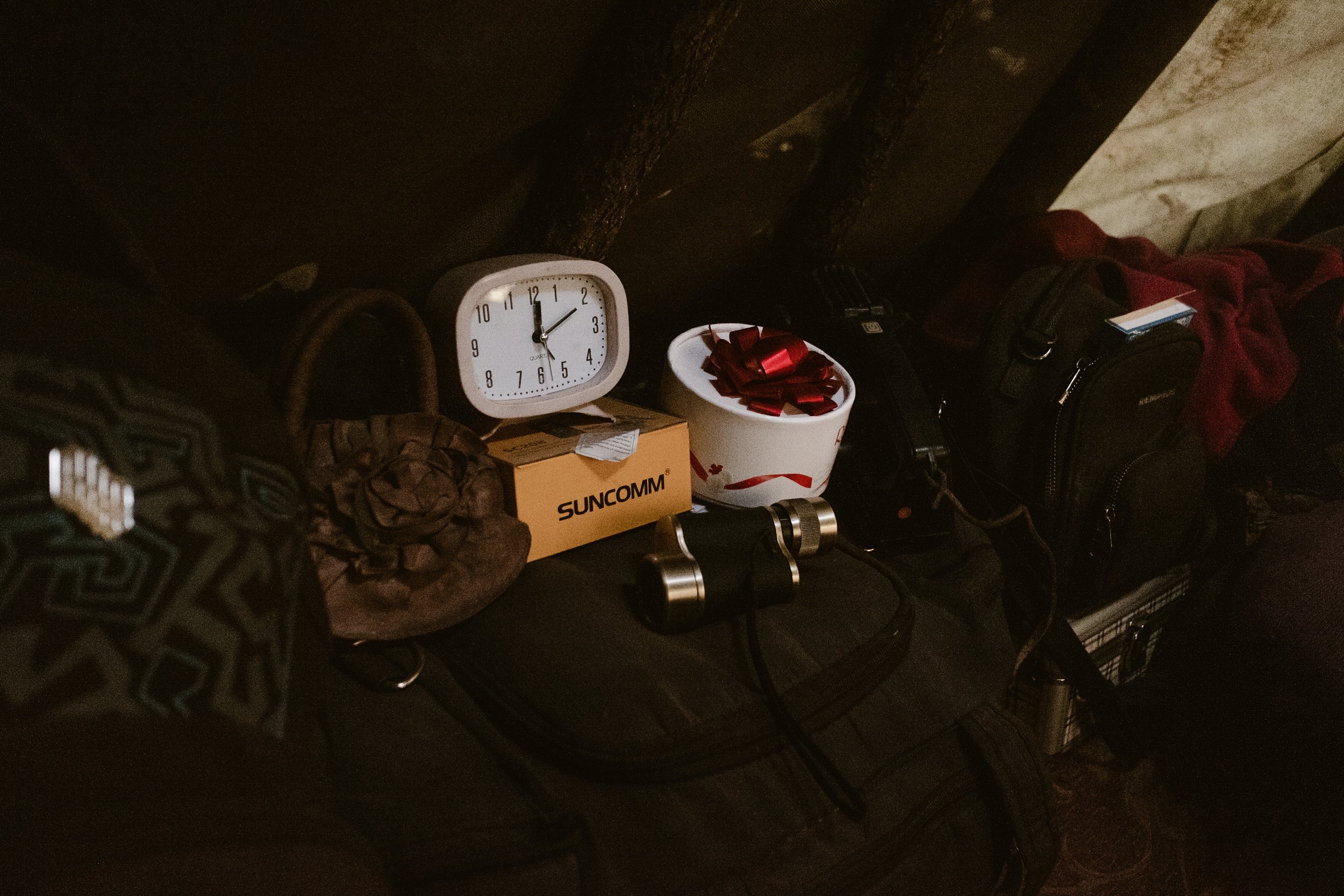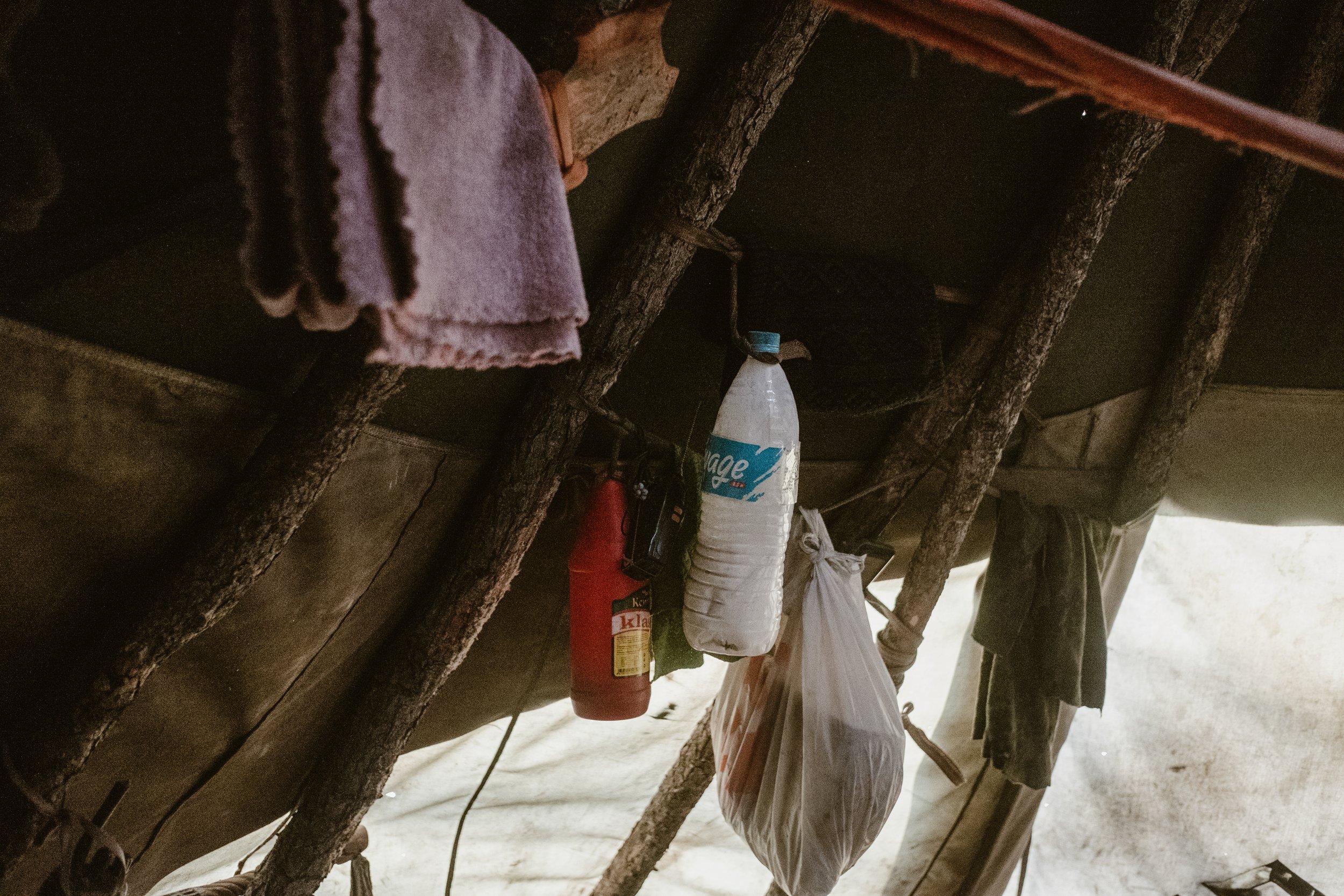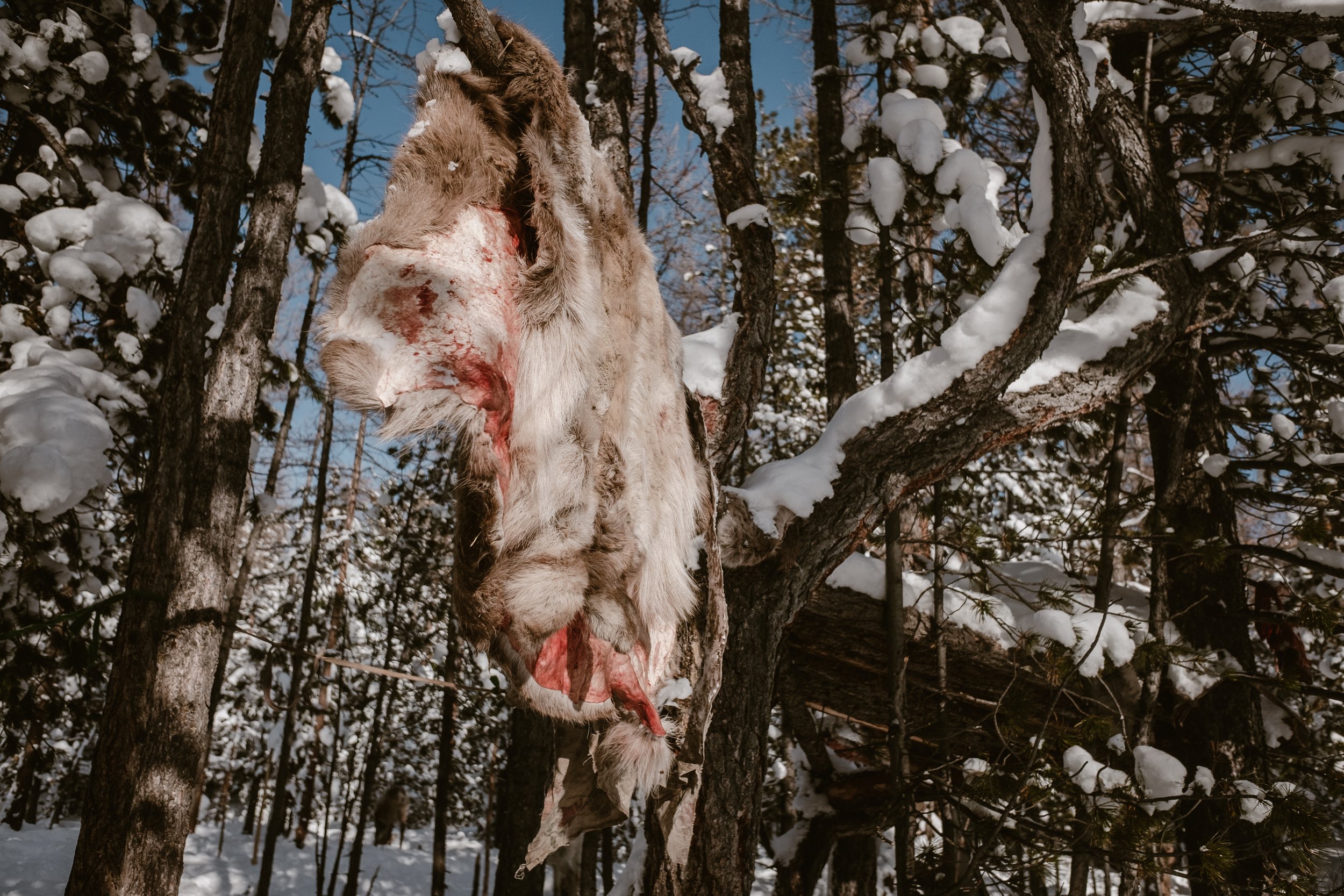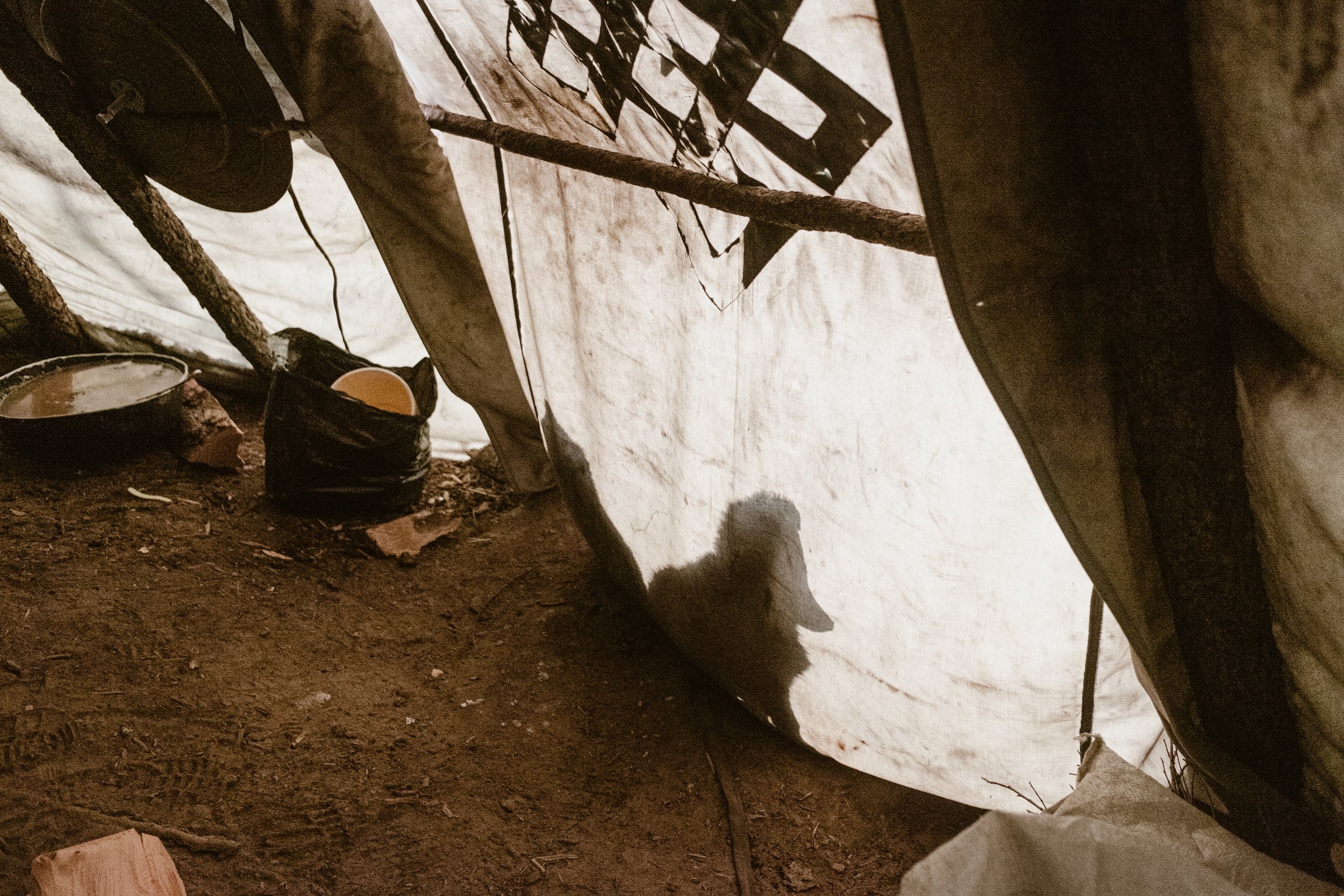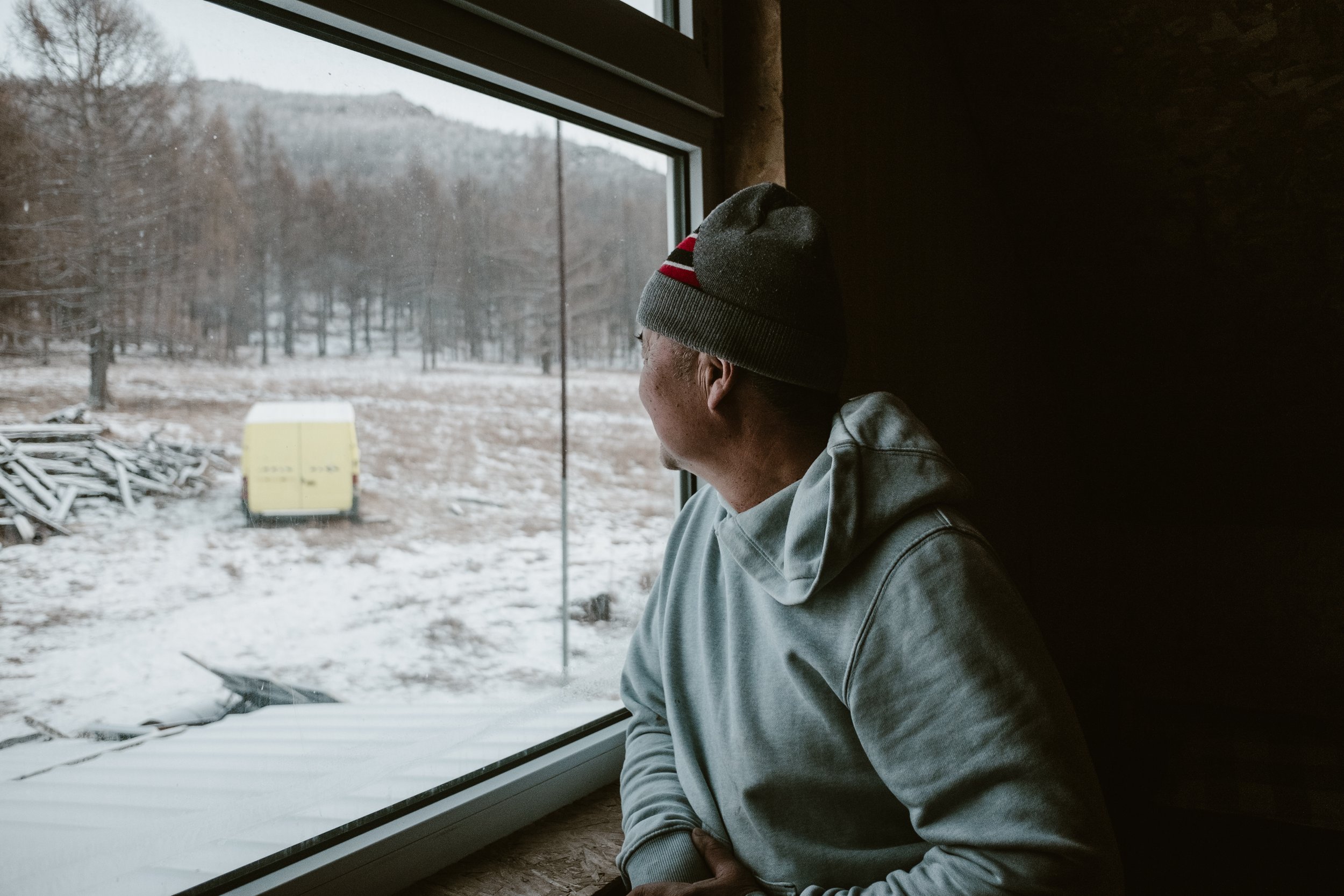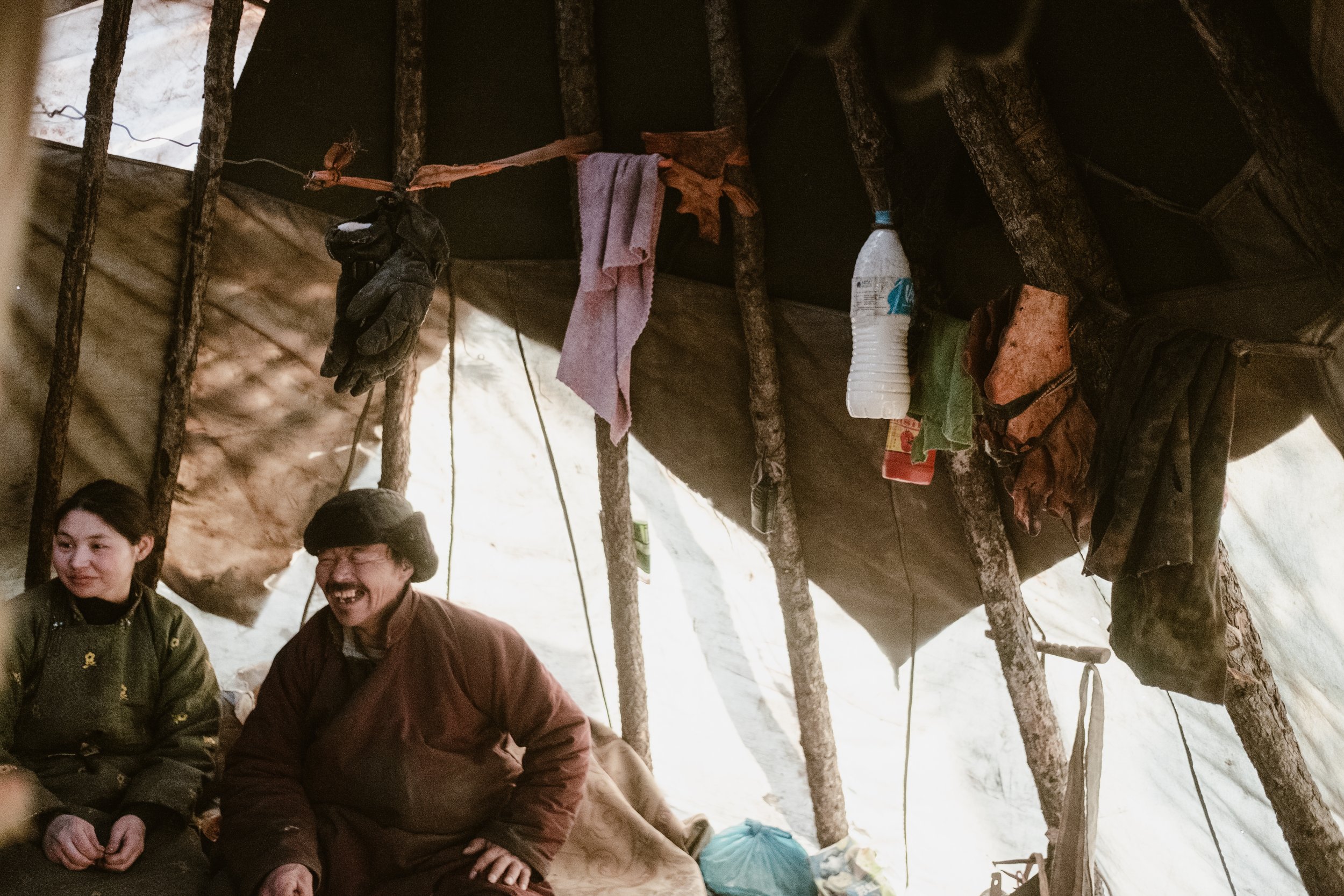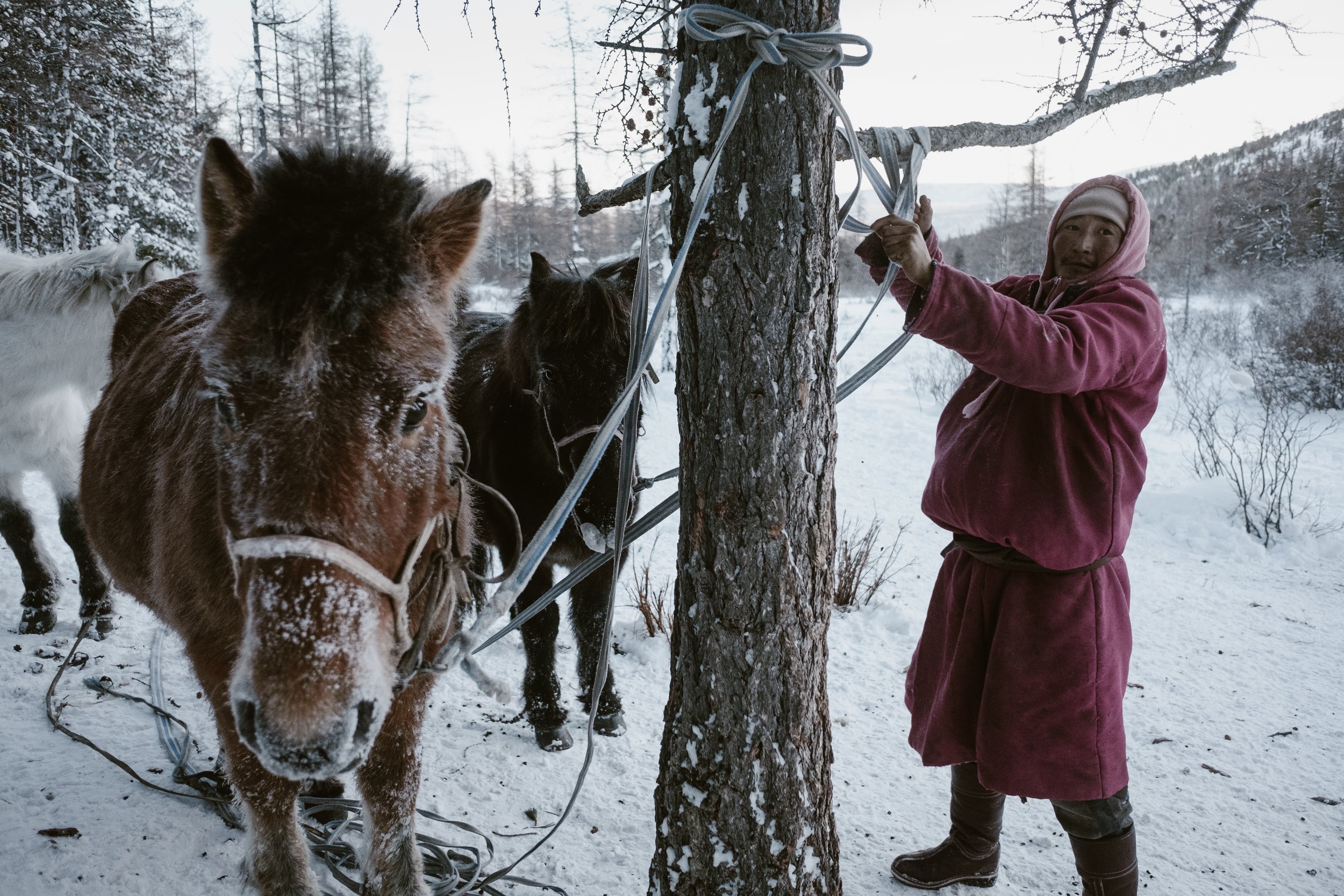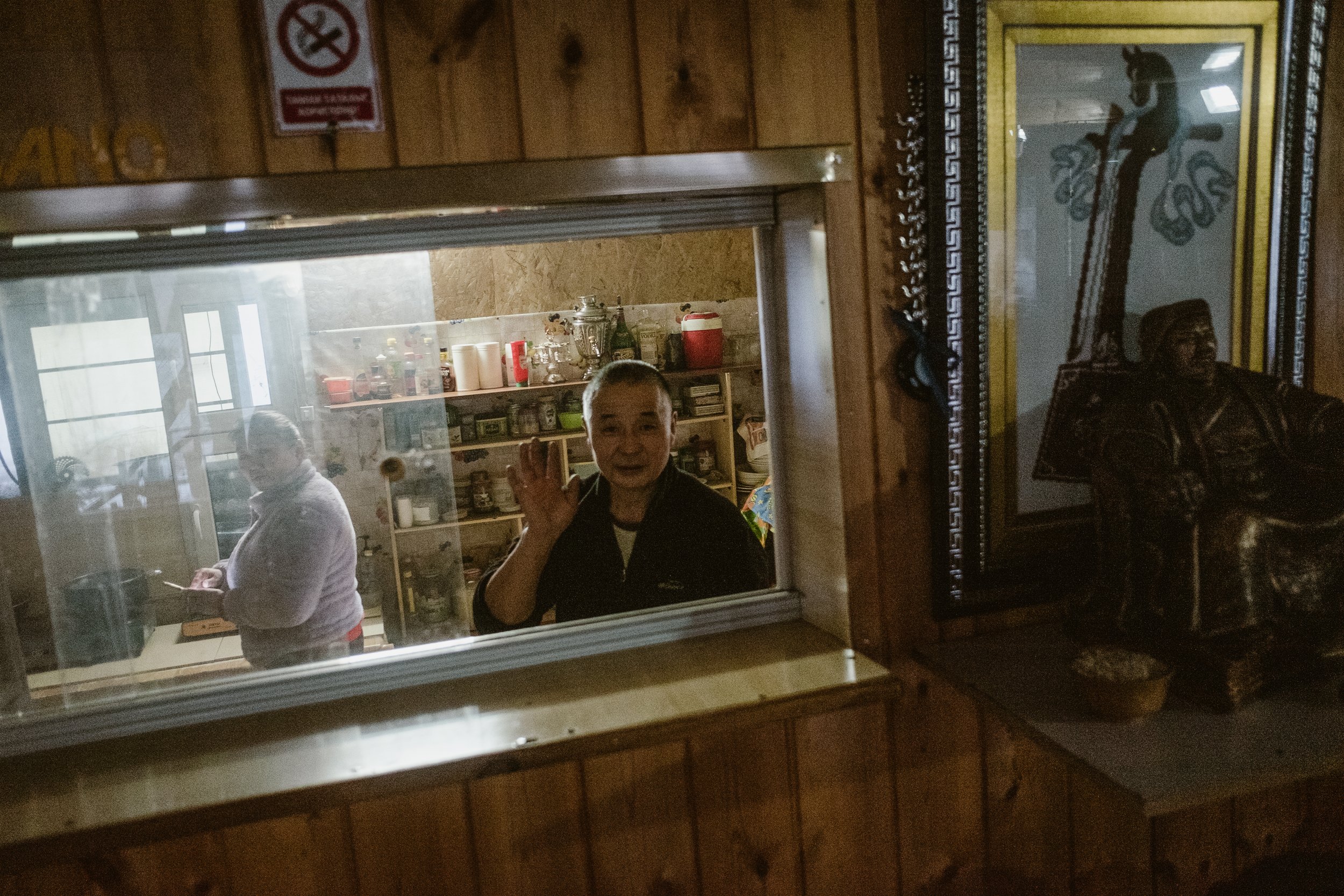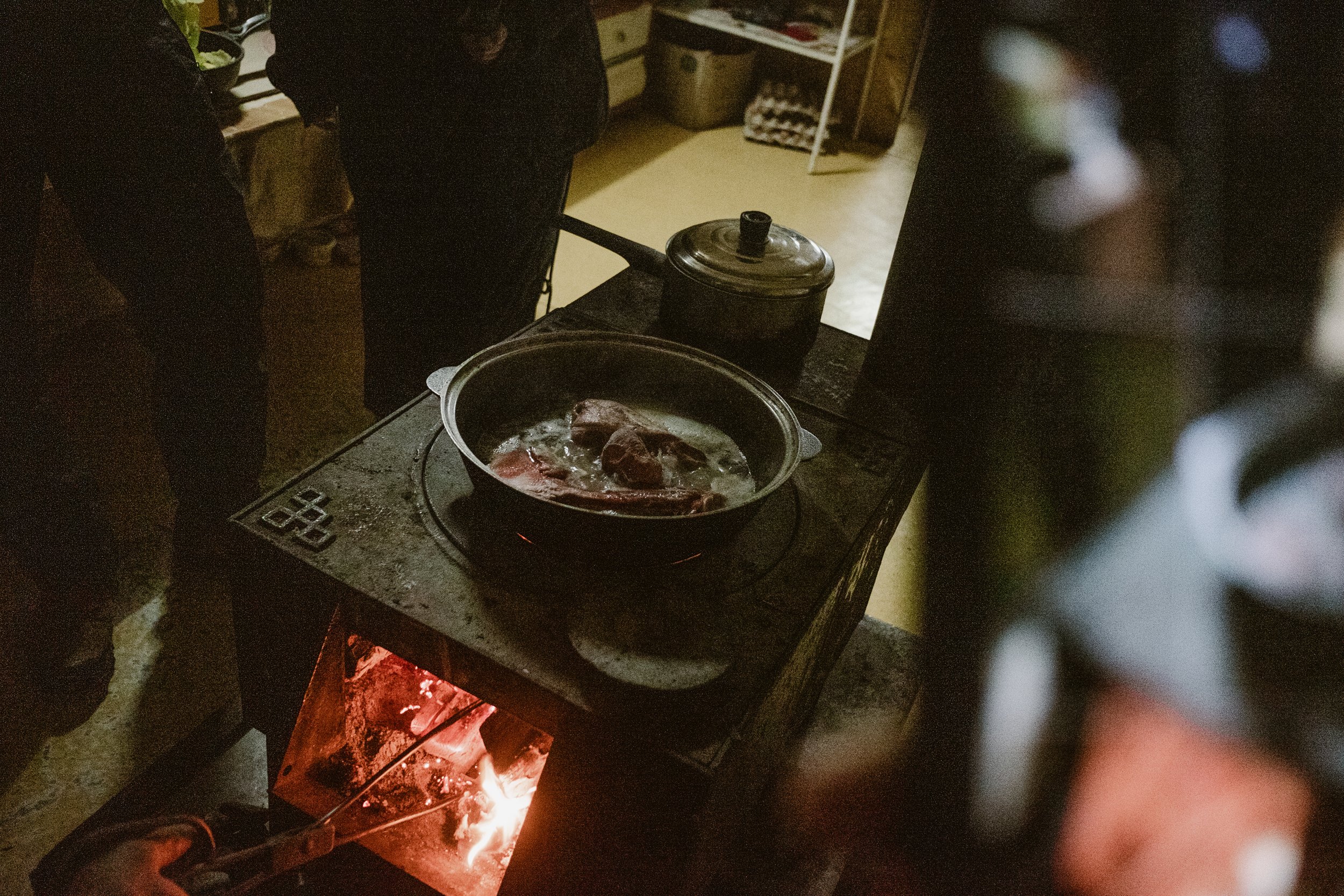Journey to the Last Reindeer Herders: A Glimpse into the Life of Mongolia's Tsaatan People
Hey there, fellow adventurer! I'm Maya, and I'm thrilled to take you on a journey into the heart of Mongolia's remote Taiga with Beyond Expeditions. Our goal is to create unforgettable experiences that ignite transformation in our travels. In this article, I'll share my once-in-a-lifetime winter adventure to visit one of the last reindeer herders in Mongolia, where temperatures plummeted to -50 degrees Celsius at night! Join me as we uncover the realities of their way of life and discover how we can make a meaningful impact. Get ready for an exciting read!
One of the two Tsaatan huts, known as "ortz," owned by the reindeer family, set against the stunning views of the Taiga landscapes.
For three days straight, we journeyed north from Ulaanbaatar, covering an estimated total of 960km. The night before, we basked in the luxury of having our final shower at a bathhouse in Murun city – a place also frequented by locals seeking a brief respite from the harsh winter with a refreshing 20-minute hot shower.
In Murun City, where we indulged in hot showers, restocked our supplies, and visited the pharmacy to get some cough medicine, as the cold was starting to affect us. The guesthouse is run by a young family who welcomed us warmly and prepared a simple dinner. Despite being no older than ten, the two young daughters spoke English with us. Their mother explained they had picked English up from previous guests!
Since I arrived in the capital city three days prior, I’ve had a glimpse of a country previously known to me only through history books. I must confess, I was taken aback by the modernity of the cities. People went about their daily lives, children in their school uniforms, shopping malls bustling with activity, and I couldn't help but notice a significant influence of Korean culture. It felt like any other city, just with an added layer of bone-chilling cold. It's worth noting that half of Mongolia's population now calls the capital city home. As I conversed with the nomads later in our journey, they mentioned that at least one of their children resides in the city, either for studies or work.
During the 960-kilometer journey, we passed through the cities of Ulaanbaatar, Murun, and Erdenet. These cities, it seemed, were recognizable by the smoke emanating from power plants and the traffic jams.
On our first night on the road, we experienced our first stay in a Mongolian ger with a hospitable couple who host guests year-round. Their children stay in the city for school while they take care of livestock such as sheep, cows, goats, and horses.
We had finally reached the highlight of our winter adventure: experiencing the life of a Tsaatan reindeer herder in Mongolia's Taiga. Our journey began at the home of what we fondly called "the horse family." The roads leading to this remote area were unpaved, making for a bumpy ride all the way. To combat the motion sickness, Alia, my travel-mate, and I found it helpful to either focus on the scenic views outside the window or to simply close our eyes until we drifted off to sleep. The landscape was stark, with snow covering the ground as far as the eye could see. There was no sign of civilization, only occasional plots of land and solitary gers scattered every few kilometers, as if emerging from the earth itself.
Our mode of transport would change the next day, as the final stretch of our journey was inaccessible by modern vehicles. We would be on horseback, guided by one of the sons of the horse family who have brought travelers to the Taiga for almost two decades. We were set to ride for another three hours through the boreal forest to reach the Tsaatan reindeer family, where we would spend the next two nights.
The Tsaatan, also known as the Dukha or the Reindeer People, constitute Mongolia's smallest ethnic minority, residing near the border with Russia. They are one of the world's last remaining groups of nomadic reindeer herders, with a mere 44 families remaining. Thriving in the remote Taiga region, where temperatures can plummet below -40 degrees Celsius, they have adapted to the harsh environment, which is ideal for their reindeer.
With a history spanning centuries, the Tsaatan have preserved a traditional lifestyle that has seen minimal change. They reside in portable homes known as ortz, resembling teepees, enabling them to move frequently in search of fresh grazing land for their reindeer. Needless to say, getting to witness their precious way of life for myself is a privilege.
The next morning, I woke up with a mix of nerves about the upcoming horse ride and the biting cold. Packing my bags, I was advised to bring what was sufficient for two nights and things that would keep me as warm as possible. Over brunch with the horse family, they took one look at our attire and shook their heads. They provided us with new boots and a traditional knee-length coat called a der to layer over my already five layers of clothing. An hour before our departure, they helped us get dressed, wrapping me up so snugly I felt like a swaddled baby. We shared a good laugh about it.
With the assistance of the horse family and our driver, Nyamka, we mounted our horses. I caught a look of worry in Nyamka’s eyes. Our horse guide gave us three simple instructions: pull the reins right or left to turn, pull them back to stop, and say “chu” to go faster. Thankfully, Beyond Expeditions’ horse guide had prepared me with this information, and more, to guide me through this experience. And so, our journey began.
The horse ride was, to say the least, the craziest experience of my life. It was a true test of my mental strength, and at times, I genuinely thought the terrifying cold (it was -35 degrees Celsius!) might overcome me. As we traversed up and down the valleys, I found solace in the horse. I felt my body grow increasingly frigid and my joints sore. My face went numb, and each time I thought we were nearing the end, the journey continued. I couldn’t believe how my body was able to take the cold.
The three-hour ride to the reindeer nomad family was the most extreme experience of my life. Fearful of succumbing to the cold, I couldn't bring myself to take out my phone or camera to document the ride. The photos above are screen grabs from videos captured on Alia's GoPro which were generously filmed by our guide, Rocky.
After what felt like an eternity, though in reality, it was only three hours, we finally caught sight of a grey teepee. 'I can't believe we made it,' I thought to myself in disbelief. A young woman greeted me with a warm smile as she helped me dismount the horse, my legs feeling like jelly. She ushered me into the hut, directing me to sit by the fire. Taking my hands in hers, she began to massage and warm them. After such an intense experience, receiving that homely kindness from a stranger meant the world to me.
To the Tsaatan, reindeer are not just animals; they are integral to their very being. Their unique way of life centers around these creatures, which provide them with transportation, clothing, and sustenance. This deep-seated relationship is steeped in centuries of tradition and cultural heritage, highlighting the enduring significance of the Tsaatan way of life. They are also known for their hunting and tracking skills, honed over generations of living in harmony with their surroundings. The Tsaatan possess an unparalleled understanding of the taiga's terrain, enabling them to navigate the rugged landscape, showcasing their resilience and adaptability.
In that cramped circular ortz, designed to accommodate two single beds and a stove, seven of us huddled together, our collective body heat providing much-needed warmth. Among us were the head of the reindeer family, his teenage son, and his daughter-in-law. Our guide, Rocky, informed me that her husband was out searching for twenty missing reindeer. It's not uncommon for reindeer to stray away, requiring herders to locate them – it’s just a part of the job.
Our horse guide was also present, and after dinner, we spent the late hours playing card games through the night. Laughter filled our little ortz, and despite the knowledge that we were quite literally in the middle of nowhere, in a country I never imagined setting foot in and my body fighting the bitter cold every second, I couldn't help but feel a sense of calm. That night, Alia and I shared a single bed, cocooned in layers of blankets, ders, and sleeping bags. Yet, the biting cold managed to seep into my bones, reminding me of the harshness of the environment. The temperature plummeted below -50 degrees Celsius those two nights. Even now, three months later, I still marvel at the resilience of those who endure such conditions.
The next morning greeted us with a breathtaking sight: reindeer, their coats shimmering in the sunlight, welcoming us as we stepped outside. We often found ourselves marveling at the beauty of the landscape, unable to believe our surroundings. When the cold became too biting, we would retreat to the ortz and warm up by the fire.
Throughout the day and night, the family tirelessly chopped wood for the fire, collected fresh snow for water, and ensured we had a steady supply of hot Tsuutei Tsai (Mongolian Milk Tea) and freshly baked bread. Their hospitality knew no bounds, and we were continually grateful for their warmth and generosity.
That first morning, we spent time with the head of the reindeer family as he carved drawings out of reindeer antlers. He shared that his wife and two other children were currently tending to their other livestock outside of the taiga, where the climate is milder for the animals. The family reunites in the summertime. He also mentioned that one of his other children now resides in the city. Alia, curious about the impact of climate change, inquired about its effects on his work and way of life.
"The difference between just a decade ago and now is striking," our guide Rocky translates. "The climate has become increasingly unpredictable. Even slight increases in temperature pose challenges for the reindeer. We can no longer rely on normal seasonal patterns. This instability and rise of severe weather events have had a detrimental effect on the reindeer. Sadly, some tribes have been forced to abandon their traditional way of life after losing their reindeer and move to the city in search of alternative sources of income."
In addition to climate change, Tsaatan reindeer herders face several other challenges that impact their way of life. One major challenge is the loss of grazing land due to mining, logging, and other industrial activities. This loss of land not only reduces the available food for the reindeer but also disrupts their traditional migratory routes.
Despite these challenges, our reindeer head is determined to preserve his people’s way of life and pass it on to future generations. What impresses me the most is how they continue to live in harmony with the natural world, relying on their reindeer and their traditional knowledge to sustain them. “It’s all that I’ve known, and I want to share it and preserve it for as long as I live,” he shares. I truly admire his sense of purpose and his commitment to his tradition and beliefs.
The space inside the ortz is limited, but it's remarkable how everything needed can fit inside. In the middle of the Taiga, where there is no connection, the nomads rely on satellite phones and walkie-talkies to communicate with each other and electricity is powered by solar-charged generators. When reindeer pass away due to the cold weather, the nomads repurpose their meat and coat, ensuring that nothing goes to waste.
I had never experienced such carefree camaraderie before. The first thing I noticed upon waking each morning was the genuine smiles on their faces. Despite the language barrier, they joked with Alia and me as though we were part of their own family. Reflecting on their presence now, I can still feel their contagious contentment, evident in every movement and word. Alia and I shared the same sentiments regarding the instant connection we felt with the family, as if we were visiting long-lost relatives.
Exploring remote places like these can enrich our lives immensely, challenging us to delve deeper into ourselves and ask questions we might otherwise avoid. These experiences offer new perspectives we never knew existed, highlighting the beauty of venturing into the unknown. But what about the impact we have on these communities? I'm here to tell you that our presence among the nomads is equally beneficial to them.
By visiting the Tsaatan, we contribute to their efforts to preserve their unique culture and traditions. Our interest in learning about the Tsaatan helps raise awareness of the challenges they face. By accepting and embracing the Tsaatan people, we help solidify their place in the global community. To get a glimpse of my unforgettable experience, watch this wonderfully curated video!
I'd like to extend a heartfelt thank you to the three individuals—Alia, Rocky, and Nyamka—with whom I shared those incredible 11 days. Your companionship made the journey unforgettable. Here's to hoping for another adventure like this in the future!
So, why wait? Immerse yourself in the wonder of the Tsaatan reindeer herders on your next adventure and discover the mutual benefits of cultural exchange and understanding! Click here for more information on how to be one with the reindeer this winter.
Discover the story of Nyamka, not just our skilled driver but also a wonderful friend, by clicking here!
For more of Maya’s Mongolia, head over to our Instagram page!
ARTICLE WRITTEN BY: MAYA
With a background in filmmaking, Maya has always been a storyteller. She hopes to bring more stories from Beyond Expeditions to you, the readers!
In her free time, Maya enjoys cycling to the beach and chilling with a cup (or two 🤫) of hot teh tarik.


